Arts & Entertainment
‘Rise of Skywalker’ gets a pass from Chinese censors – but not from toxic fans


The opening weekend for “Star Wars: The Rise of Skywalker” brings a mixed bag of news – some of it good, some not-so-good, depending on how you look at it.
In the former category, as reported in Variety, a same-sex kiss between two female characters slipped by censors in China, allowing the film to be released uncut in a country where government censorship has been historically strict about LGBTQ content, despite the decriminalization of same-sex sexuality and the declassification of homosexuality as a mental illness.
The kiss, which takes place late in the film and could easily be described as a “blink-and-you’ll-miss-it” moment between minor characters, was teased by the film’s director and co-writer J.J. Abrams a few weeks ahead of the movie’s release, when he told Variety he has always wanted the people of “Star Wars” to look “more the way the world looks than not,” and that, regarding the LGBTQ community, “it was important to me that people who go to see this movie feel that they’re being represented in the film.”
The representation can be seen an important step in the struggle for global advancement of LGBTQ acceptance, indicating an erosion of a key roadblock that traditionally serves as an excuse for major studios to balk on featuring LGBTQ characters or storylines – the accepted notion that such material would be denied release in lucrative international markets, resulting in the loss millions of dollars in profits.
Speaking with the Blade in 2018, GLAAD President and CEO Sarah Kate Ellis questioned the validity of this argument, saying, “I’ve never seen the science or the methodology behind that and I think if they ever did those studies, they probably did them decades ago,” Ellis says “There are these false narratives that live within the entertainment community that we all buy into and we’ve all taken them on as the truth.”
The moment in “Rise of Skywalker” is the first time in “Star Wars” history that a same-sex romantic relationship has been depicted in one of the franchise’s films, though a 1999 comic book, “The Bounty Hunters: Aurra Sing,” featured the first LGBTQ character within the “Star Wars” universe, and several LGBTQ characters have since been depicted in “Star Wars” video games.
Onscreen, 2018’s “Solo: A Star Wars Story” featured the character of Lando Calrissian, who was confirmed by both screenwriter Jonathan Kasdan and actor Donald Glover as pansexual. More recently, Justin Ridge, executive producer of the kid-friendly “Star Wars Resistance” TV series, said on a podcast that two fan-favorite characters from his show are “absolutely a gay couple,” and Queerty published a story reporting on rumors that an upcoming “Star Wars” series on the Disney+ streaming service will “feature an out-queer lead.”
While most commentators have acknowledged the historic importance of the lesbian kiss in “Rise of Skywalker,” many have also expressed a less-than-positive perspective. An article in Variety lamented that the brief onscreen moment has “zero impact on the story” and features “characters who barely register within the vast tapestry of the ‘Star Wars’ creative galaxy.”
The Hollywood Reporter went even further, publishing an article that characterized it as “a step back for LGBTQ representation” and called out Disney for a history of “queerbaiting” LGBTQ fans, citing as an example this year’s earlier “Avengers: Endgame,” which included a similarly brief and non-essential scene as its sole nod toward LGBTQ inclusion.
Critical response to the film, which is the final installment of the so-called “Skywalker Saga” which originated with the first “Star Wars” film in 1977, has been mixed; audience reactions have been predictably divisive, reflecting a trend in fan culture that was explored in a recent essay in Esquire, which suggests the aggressively hostile reaction of some fans over the newer installments is a response to their frustration “that heroes in ‘Star Wars’ – and in other massive properties – are no longer exclusively straight, white, and male.”
Earlier this month, former Trump advisor Sebastian Gorka made comments on his “America First” radio show decrying Abrams’ hinted revelation of an LGBTQ moment, saying, “Well, you know, if you couldn’t destroy the franchise already, let’s destroy it a little bit more. The last installment of the ‘Star Wars’ saga would include a member from the trans — is it trans? Let’s just say the alphabet soup community.”
His derisive comments echo many of those made by angry fans around the franchise’s most recent rebooted trilogy, which have each featured an increased number of prominent characters who are female or people of color; the backlash reached a peak with the release of “The Last Jedi” in 2017, when disgruntled fans mounted campaigns to have the movie removed from the “official” canon, and some even calling for it to be remade.
In addition, Vietnamese-American actress Kelly Marie Tran was driven to delete her social media accounts when she was beset by sexist and racist insults by “a legion of trolls,” as detailed in a 2018 Yahoo article which describes the increasing trend toward virulent grassroots activism as “toxic fan culture” and links “ the vile online behavior of a vocal minority” of fans to “elements of the far-right and the misogynist ‘incel’ men’s movement.”

The 2026 Mr. Mid-Atlantic Leather competition was held at the Hyatt Regency Capitol Hill on Sunday. Seven contestants vied for the title and Gage Ryder was named the winner.
(Washington Blade photo by Michael Key)
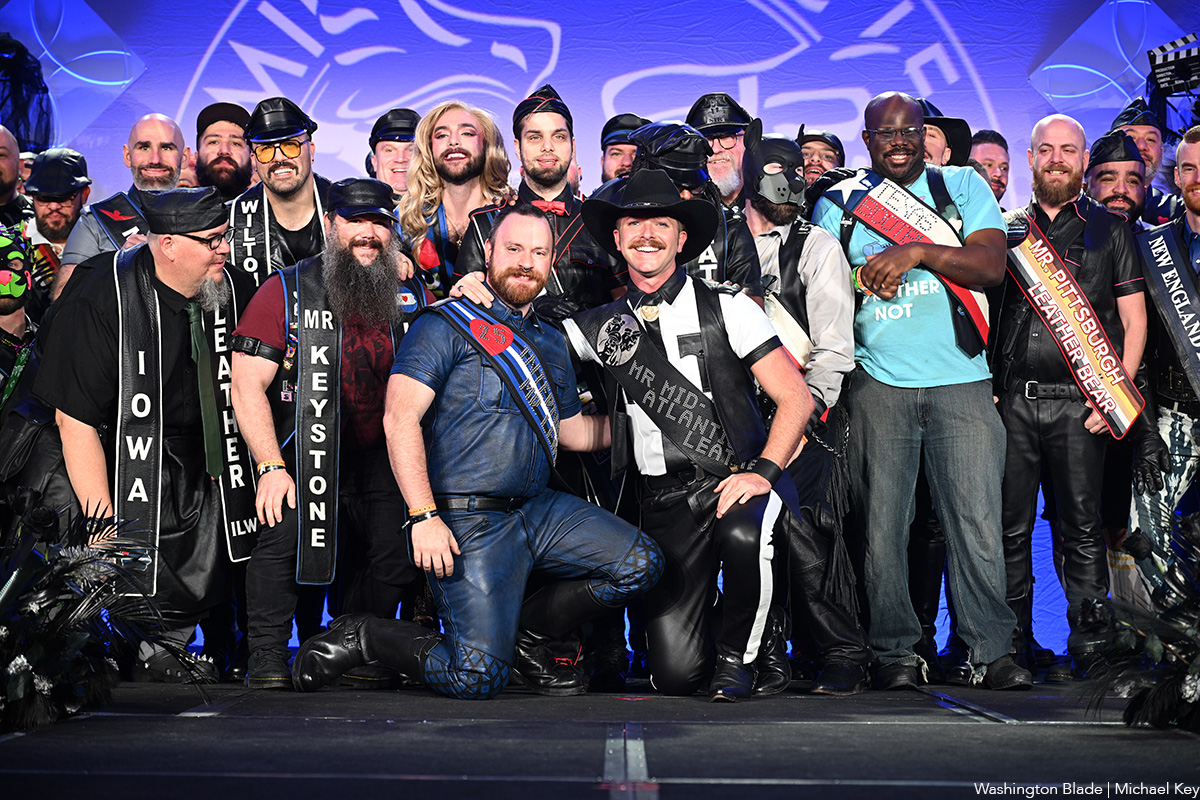




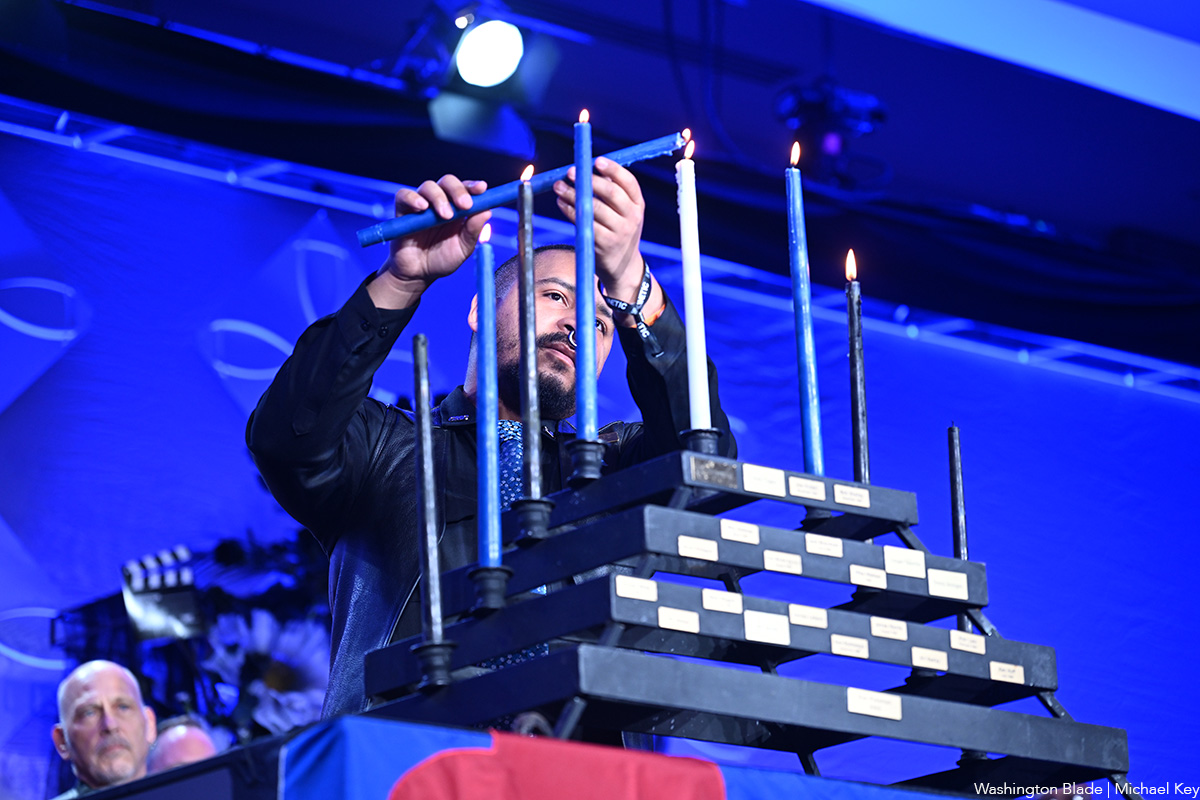


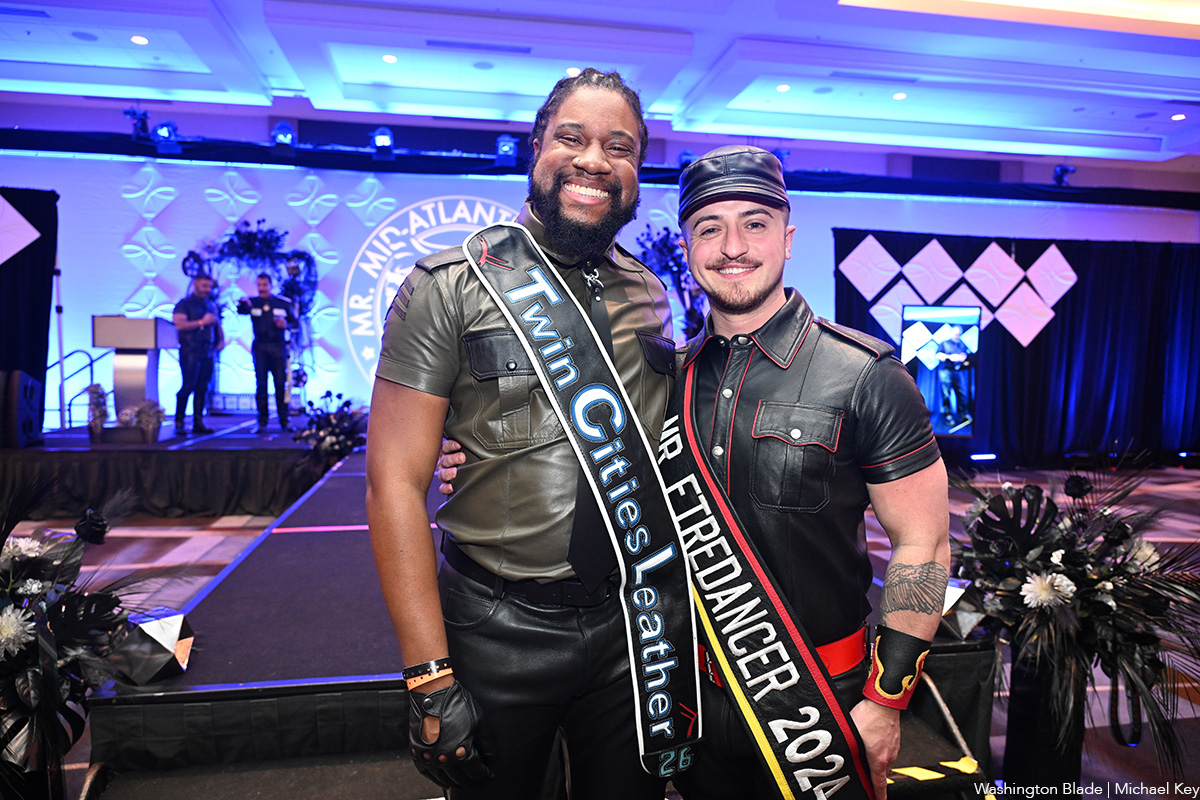
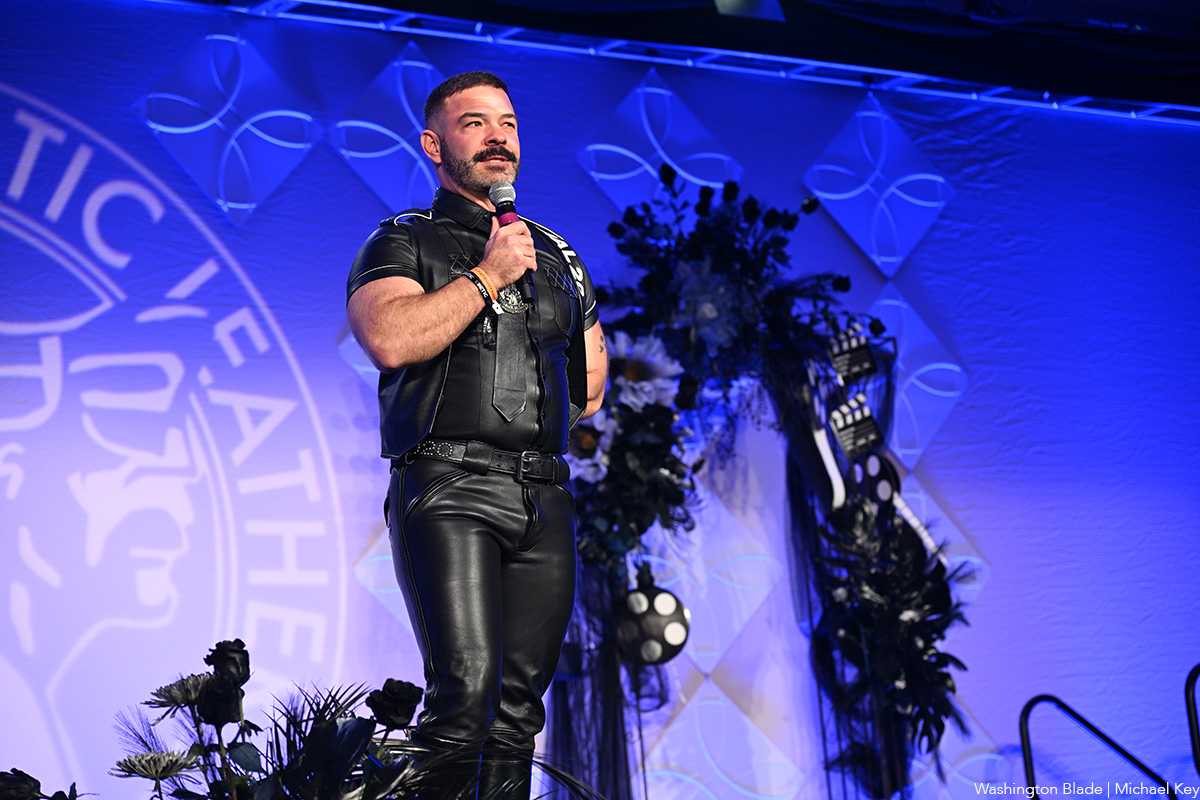
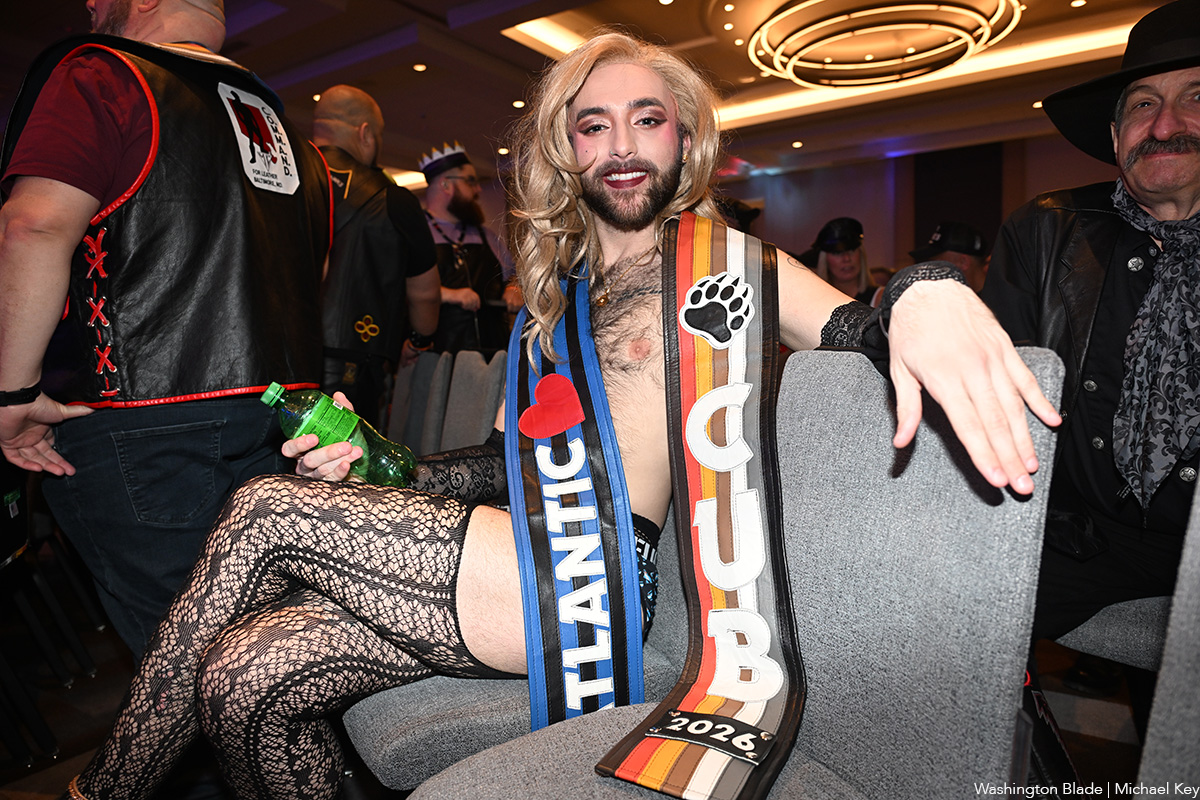
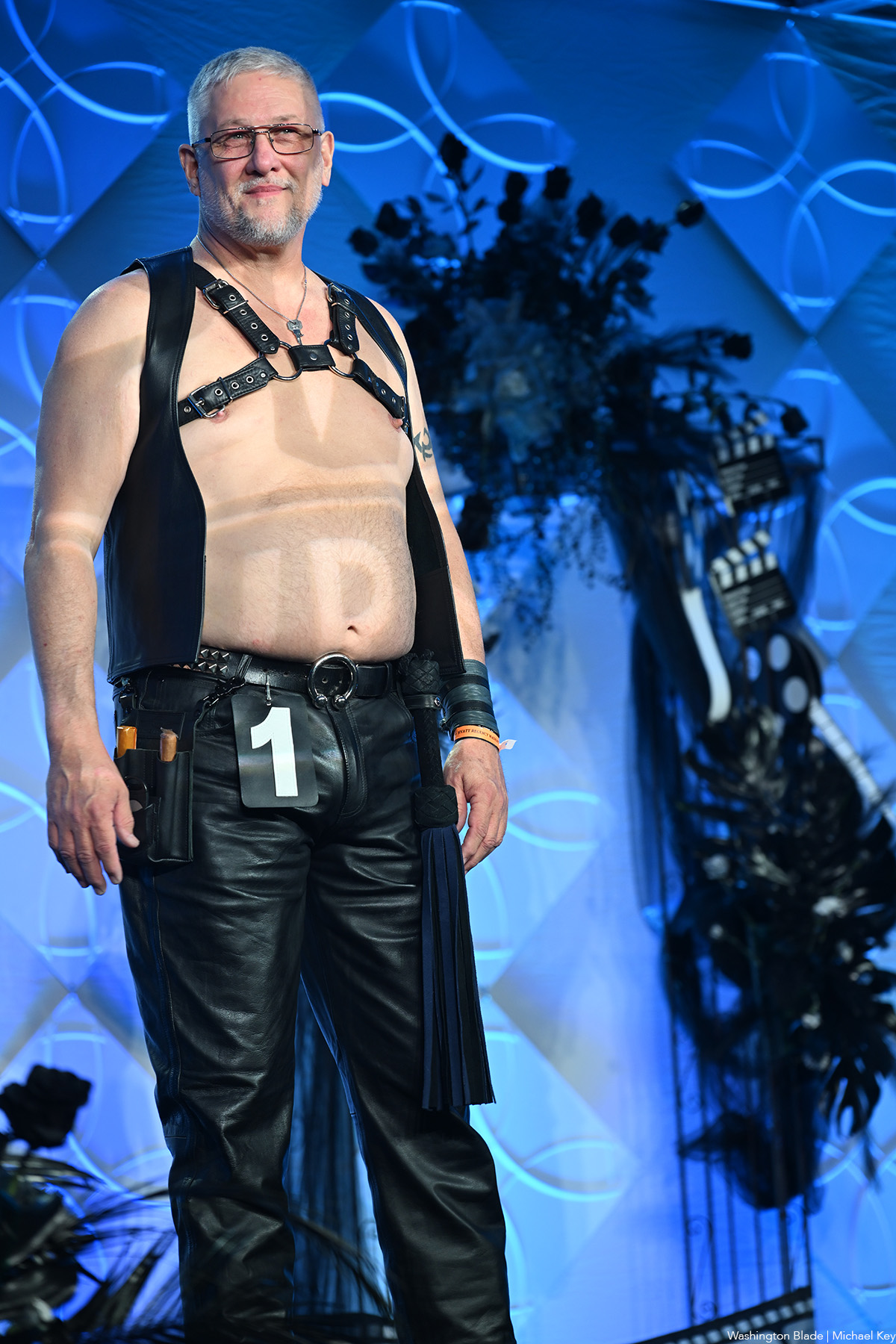
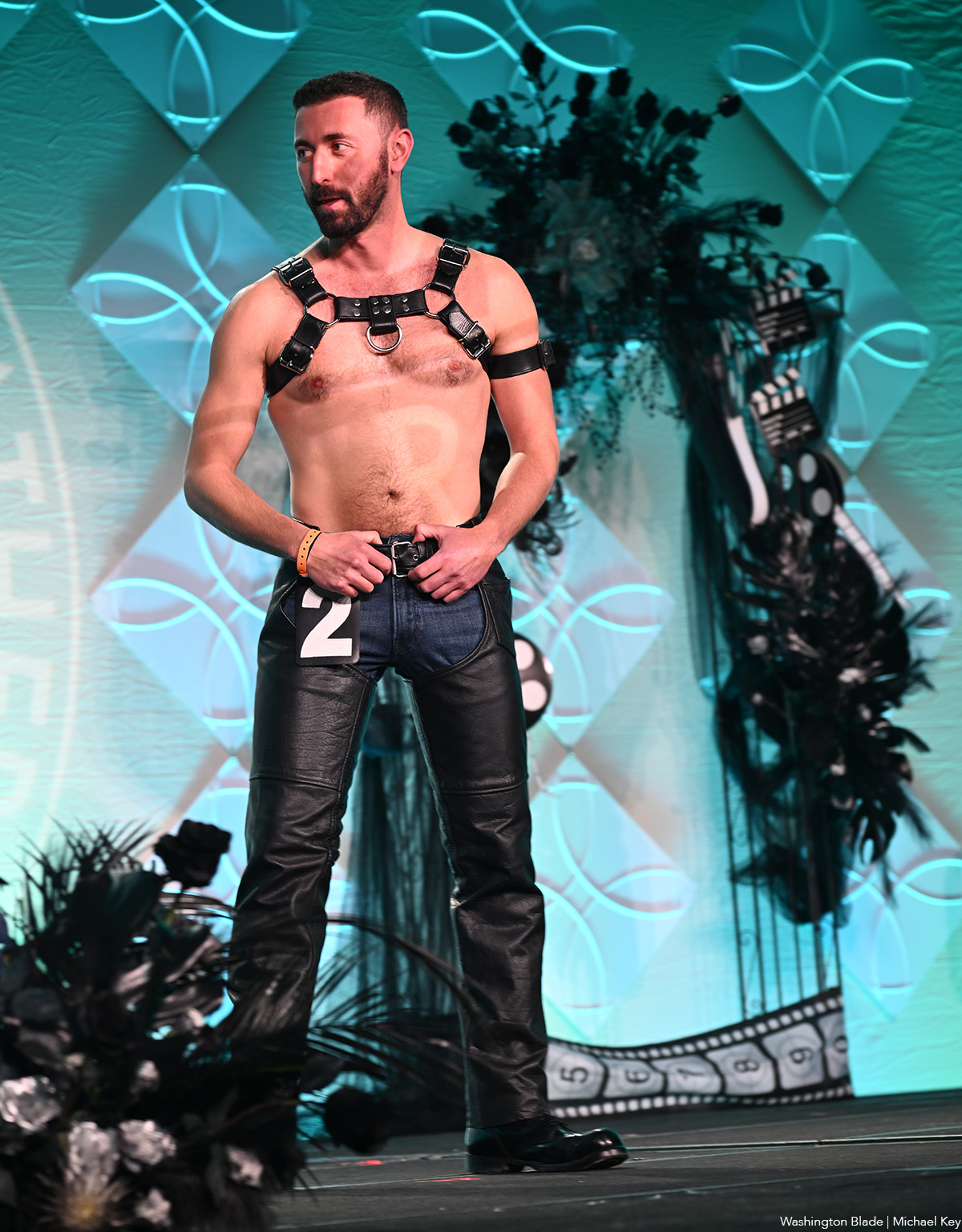

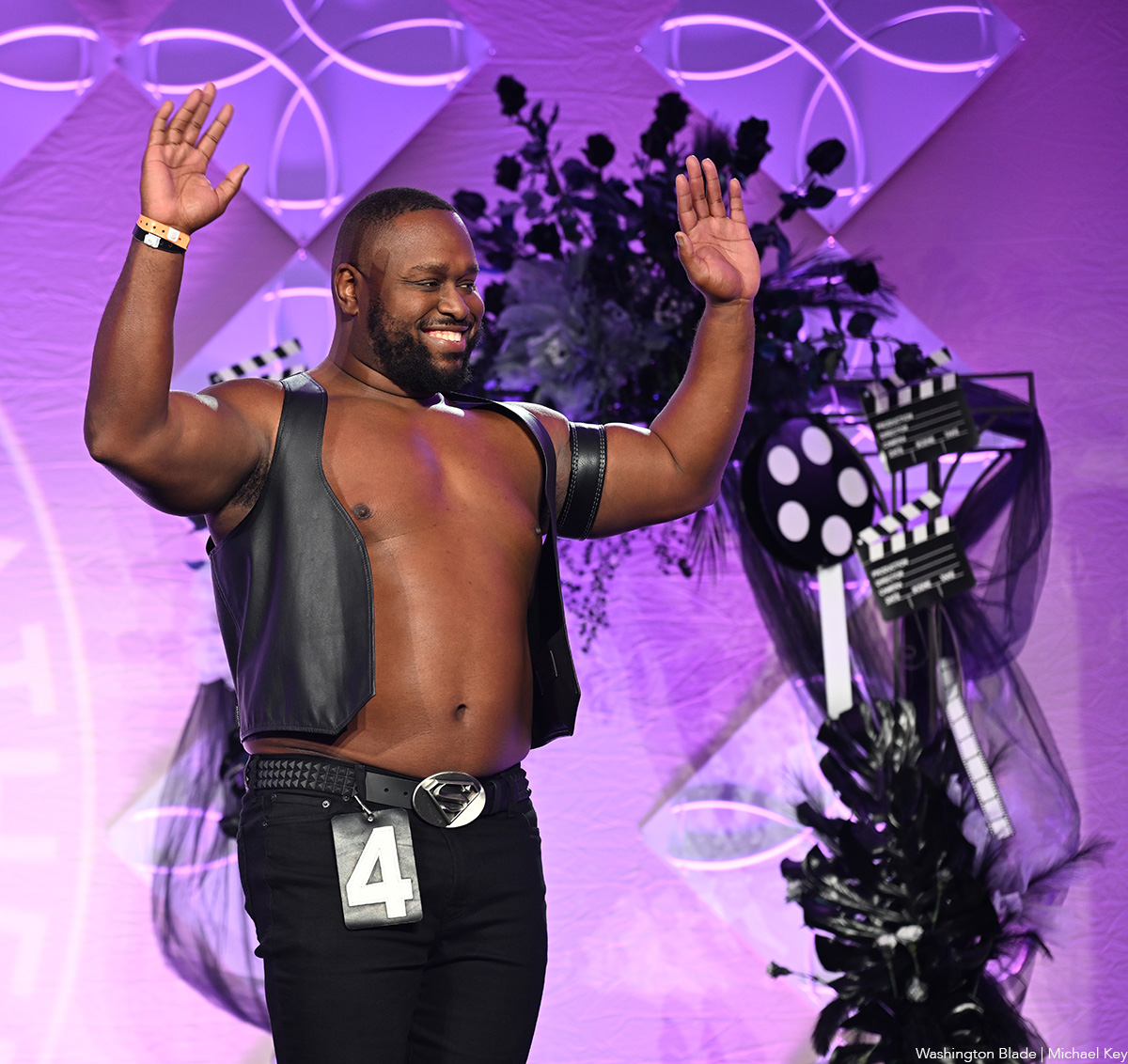
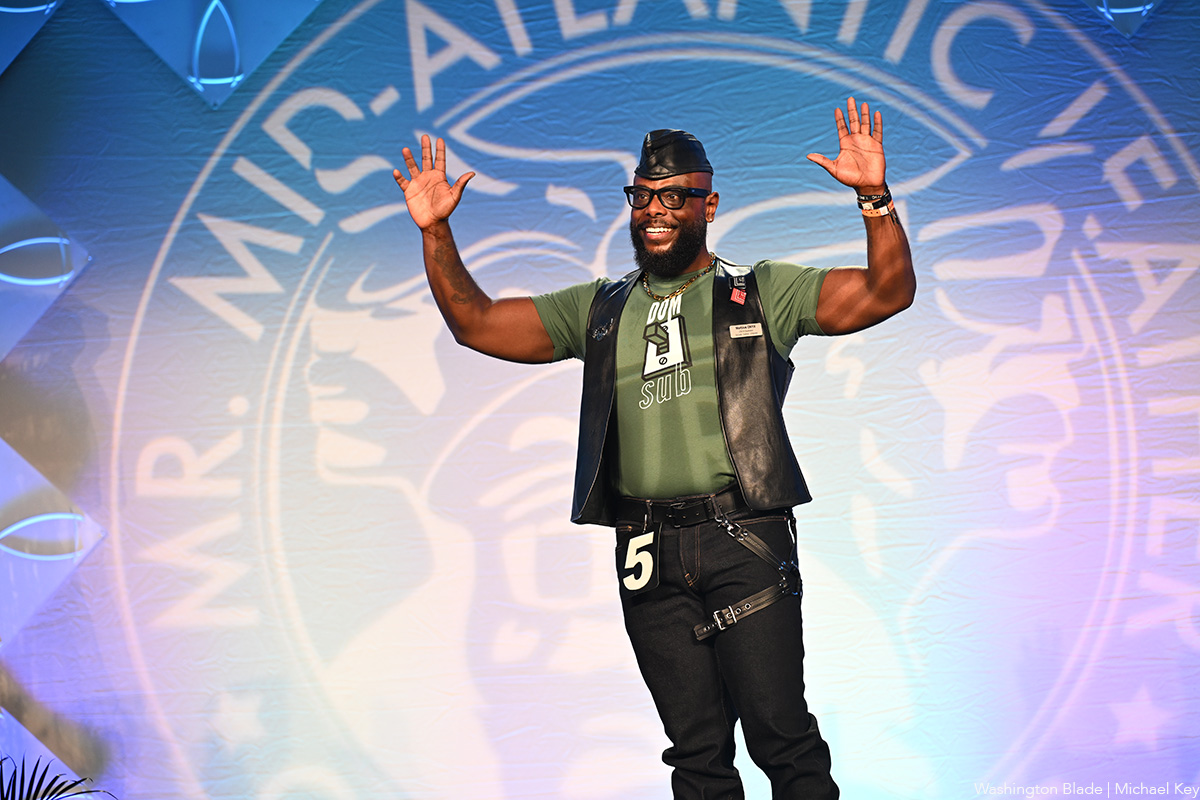
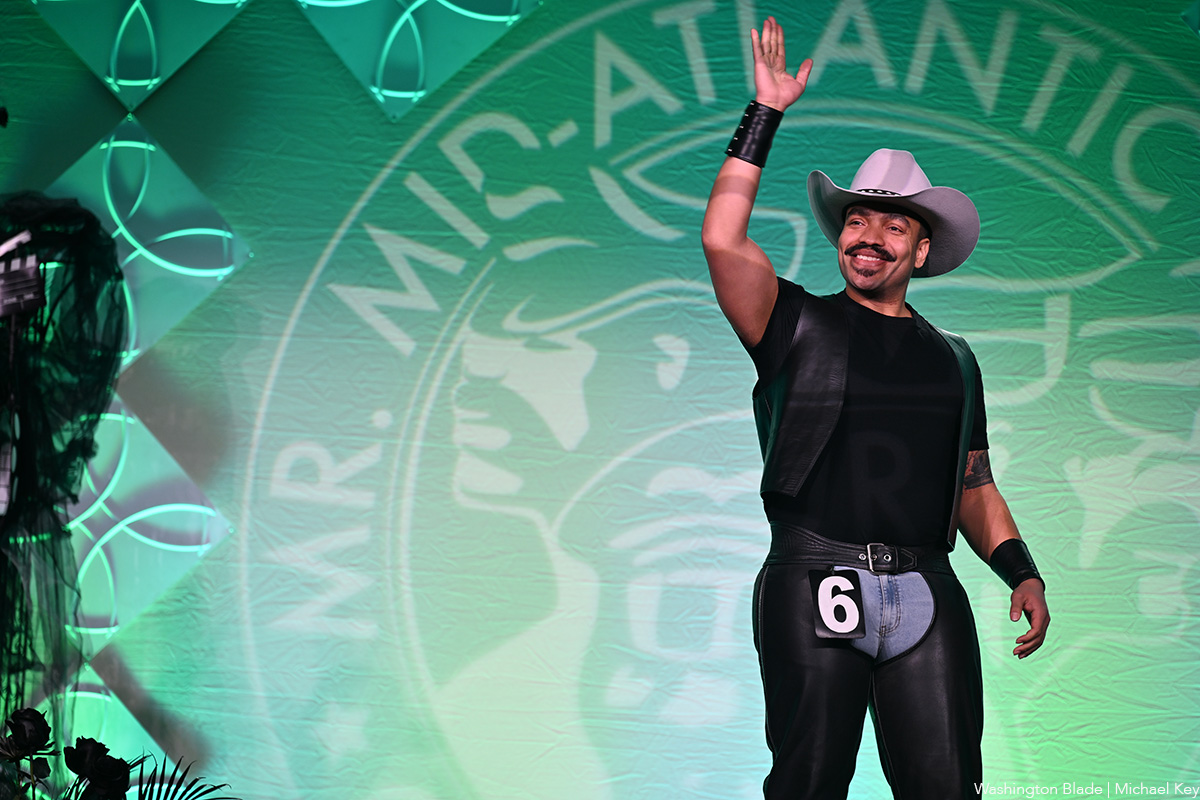
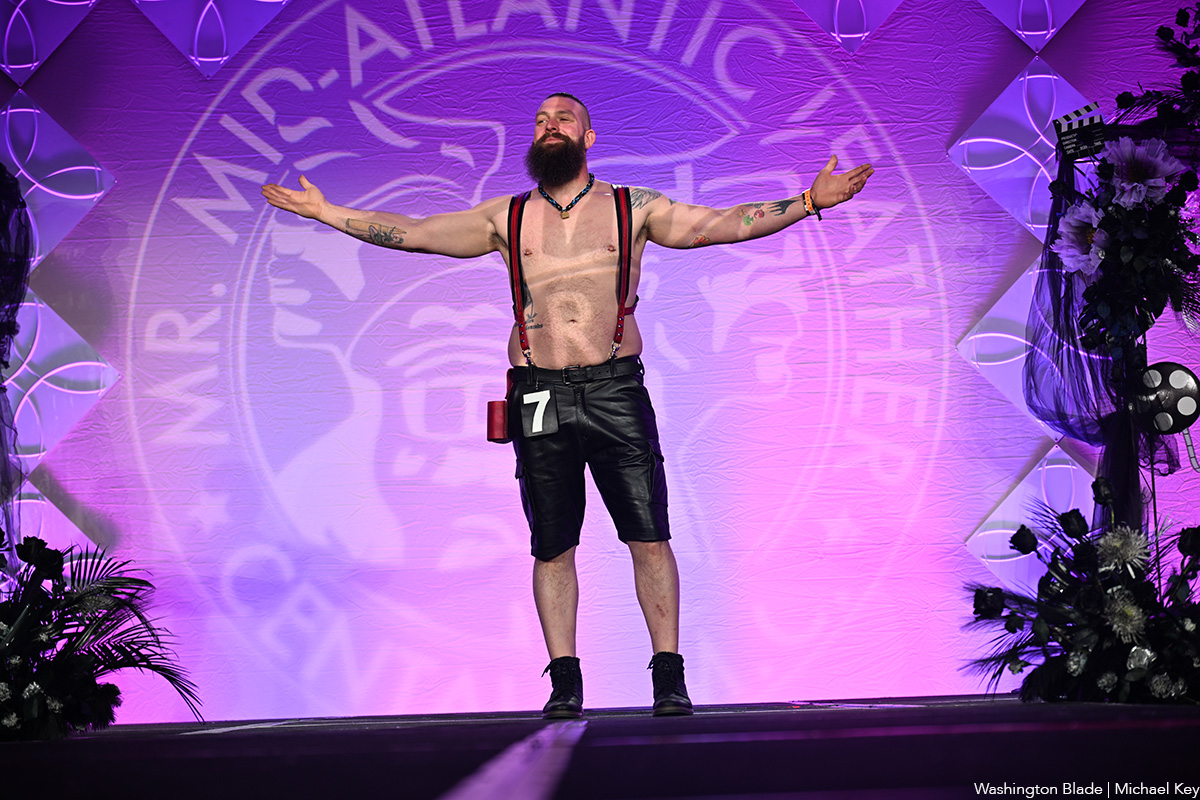
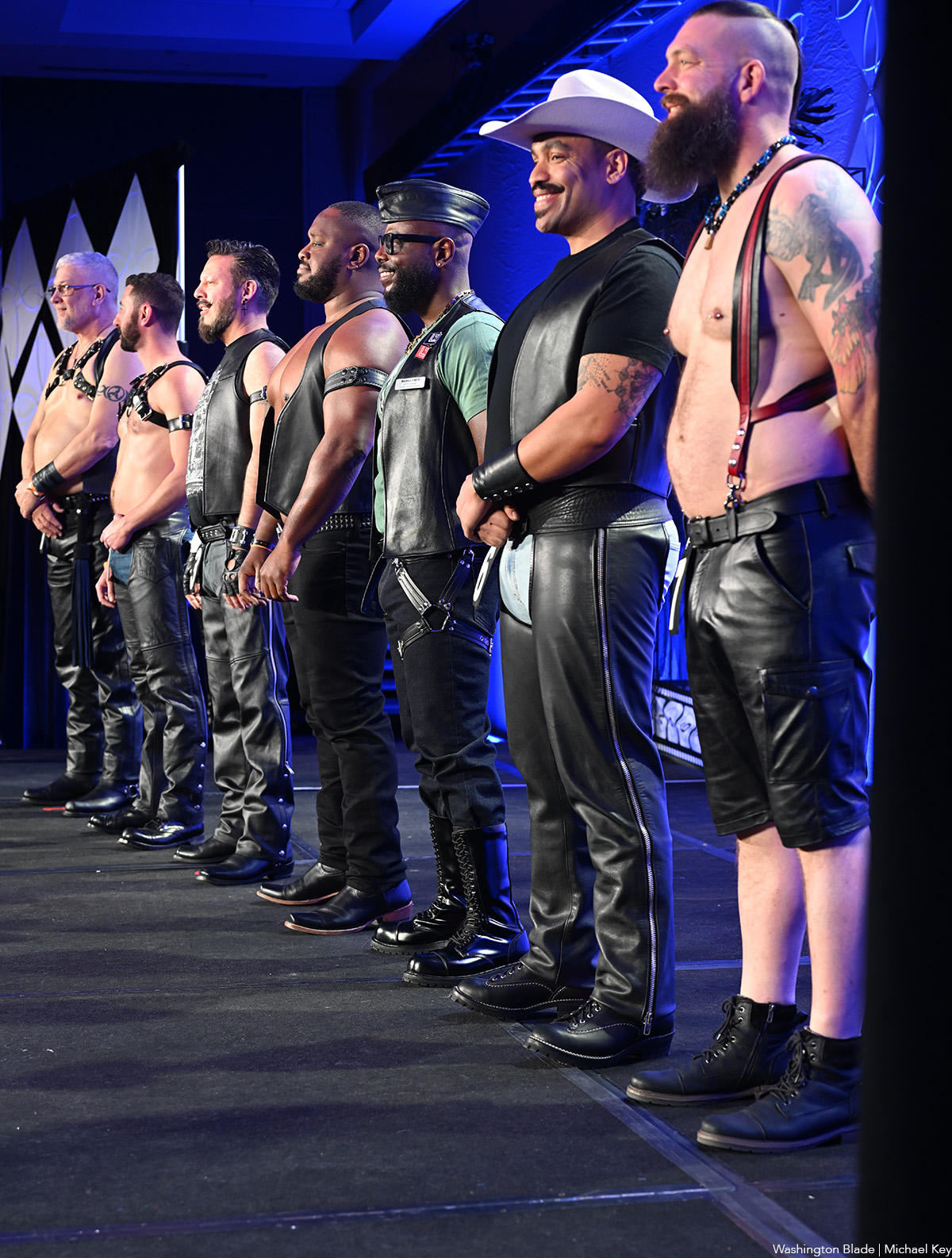
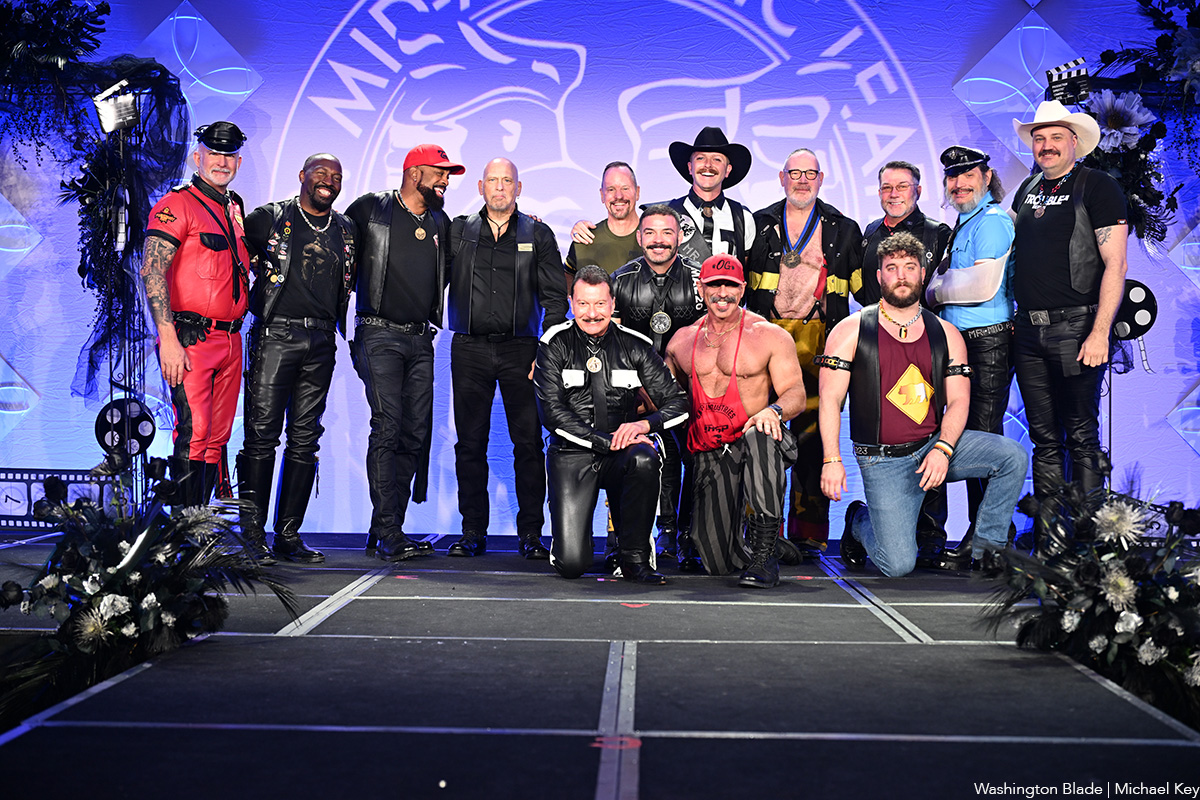
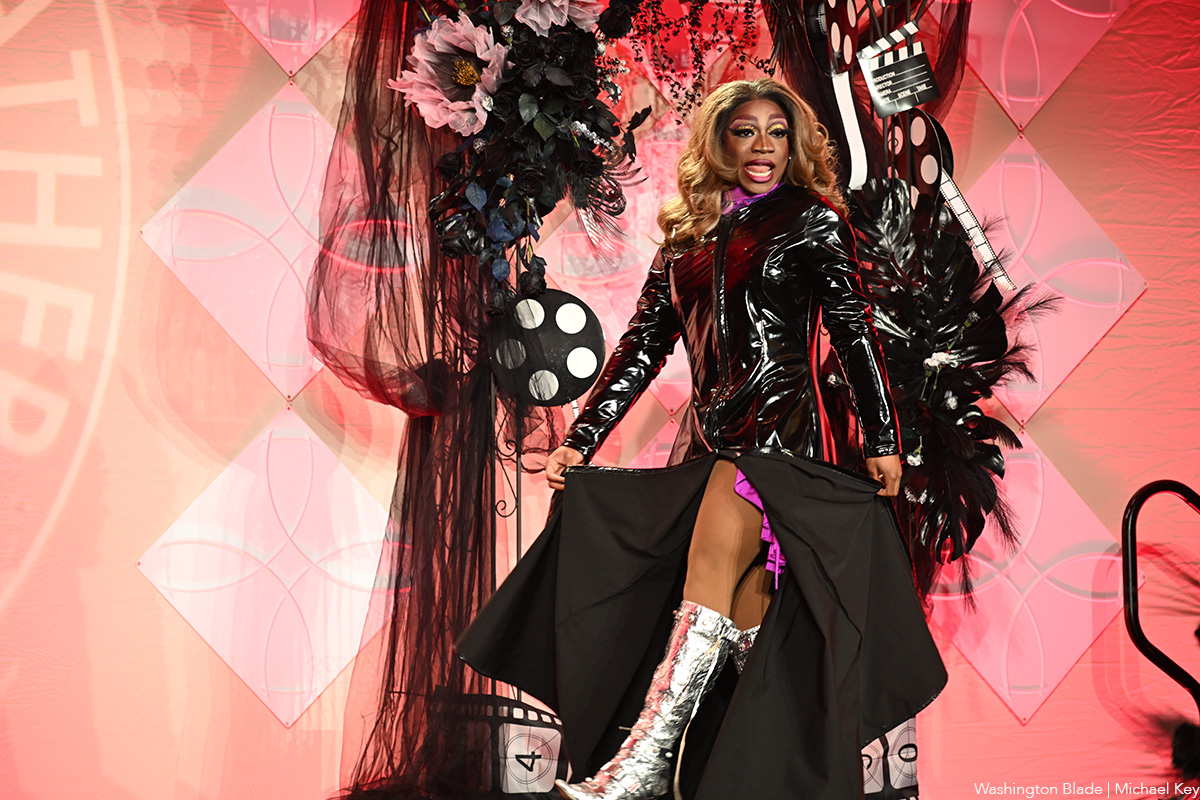
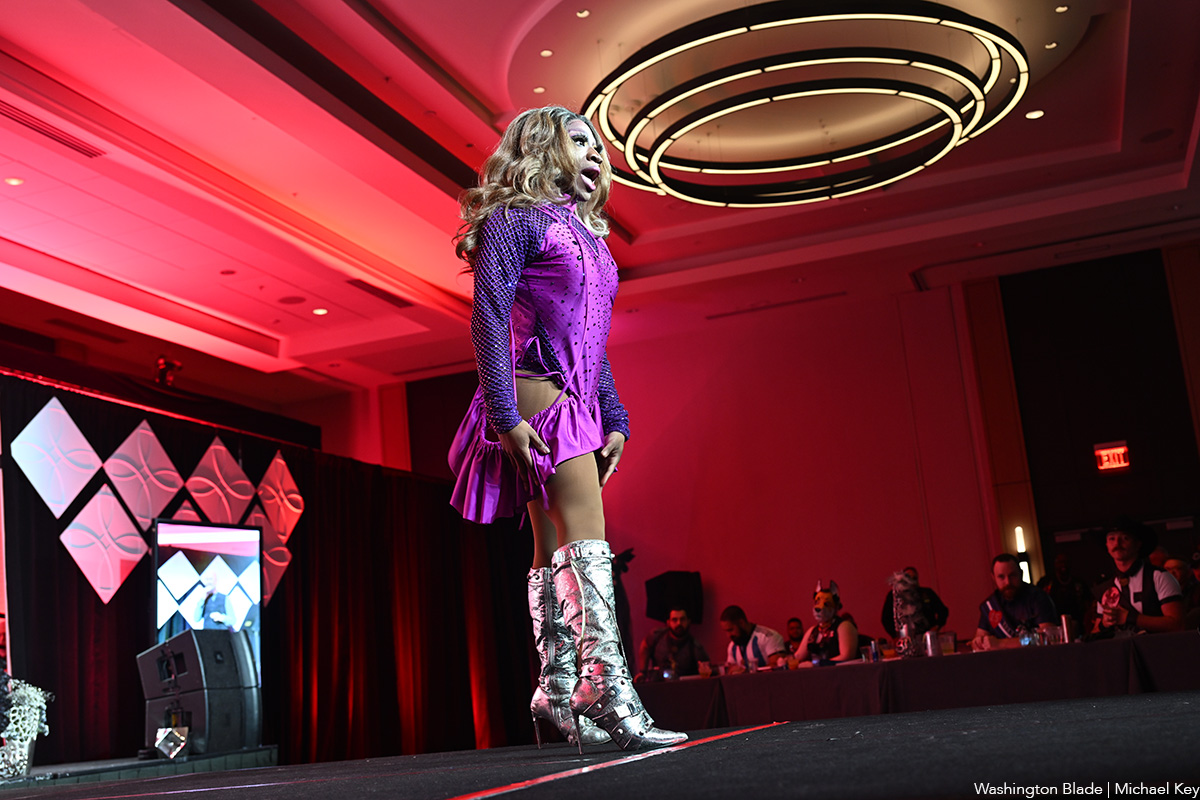
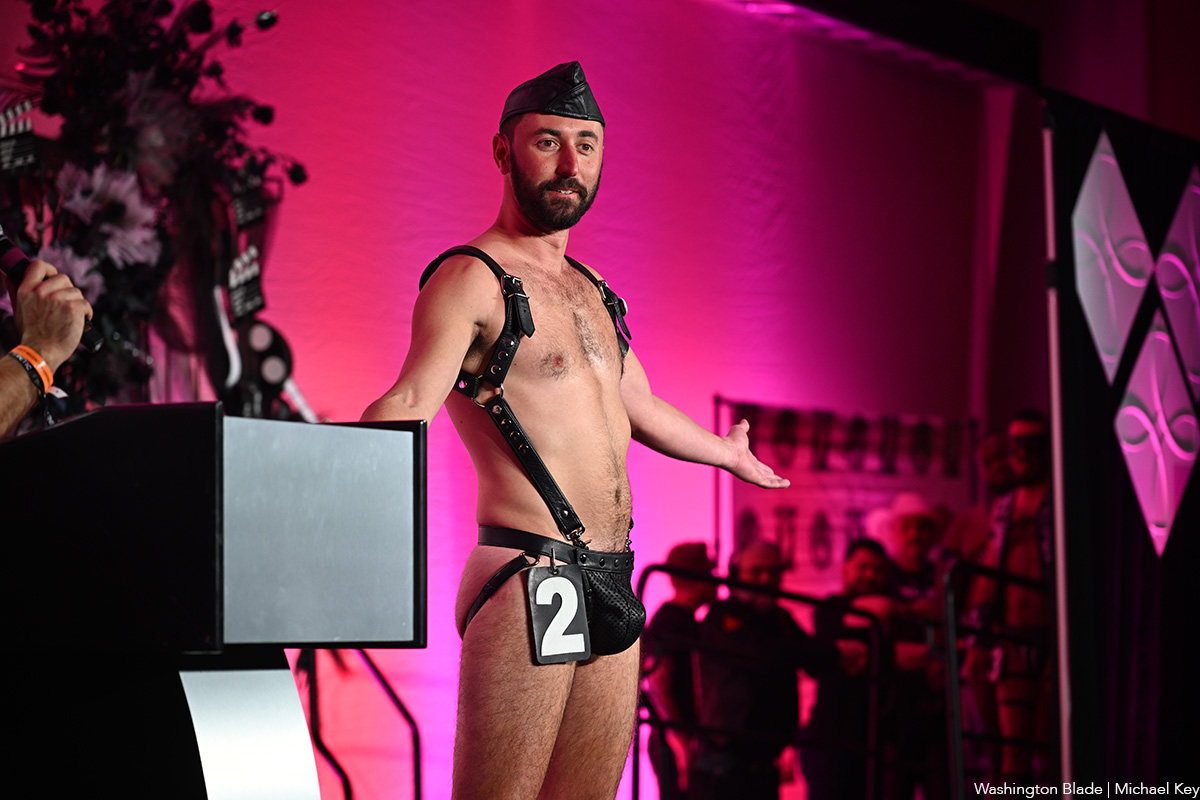
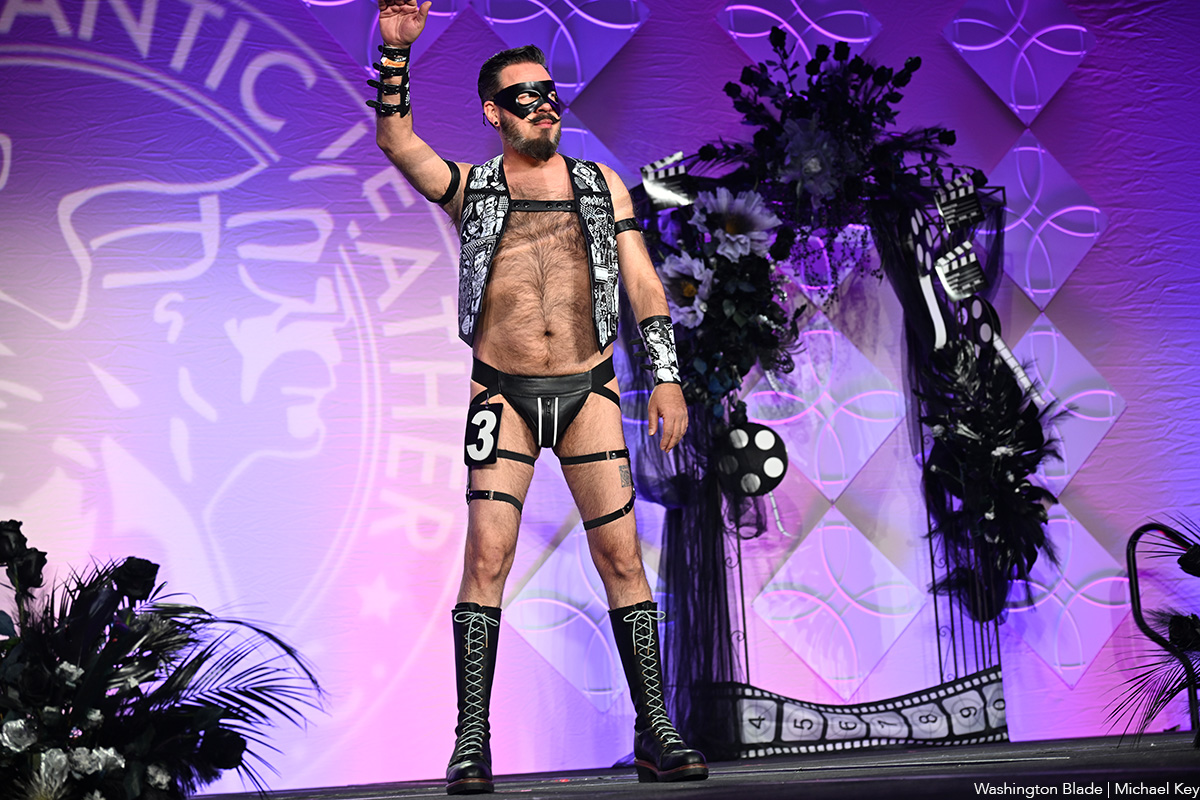
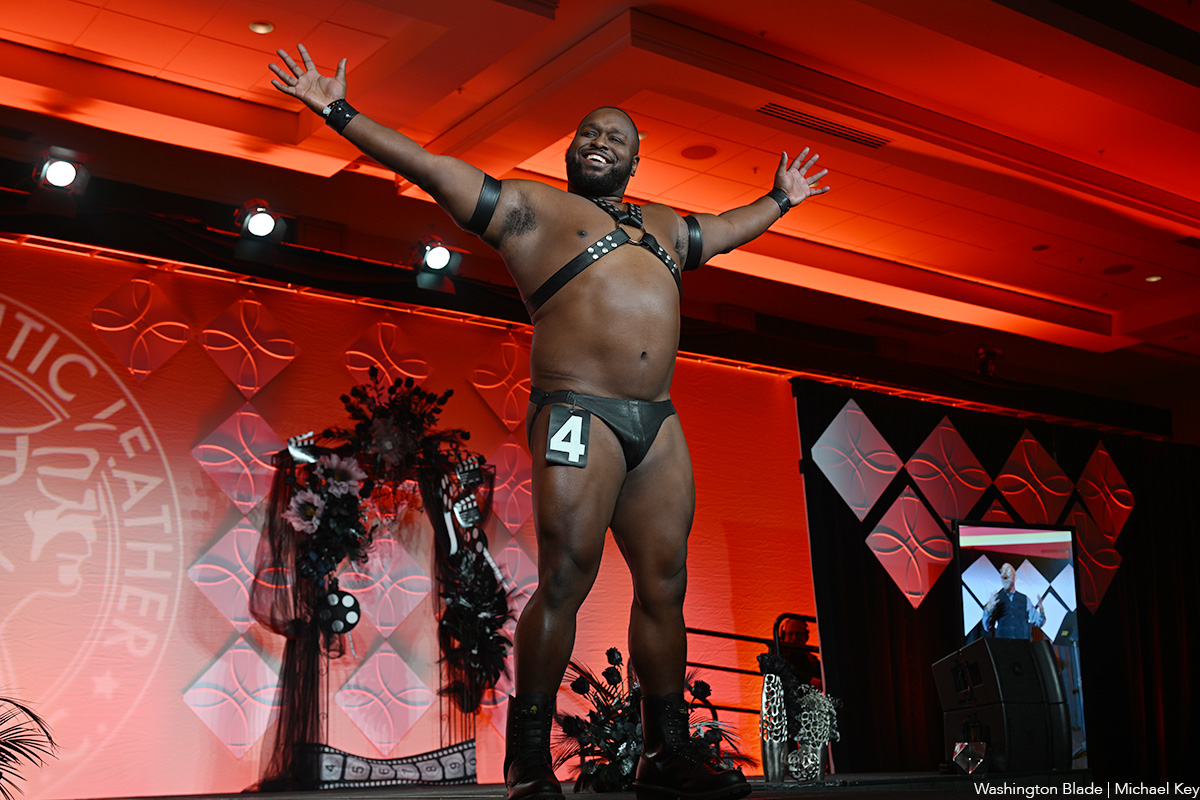
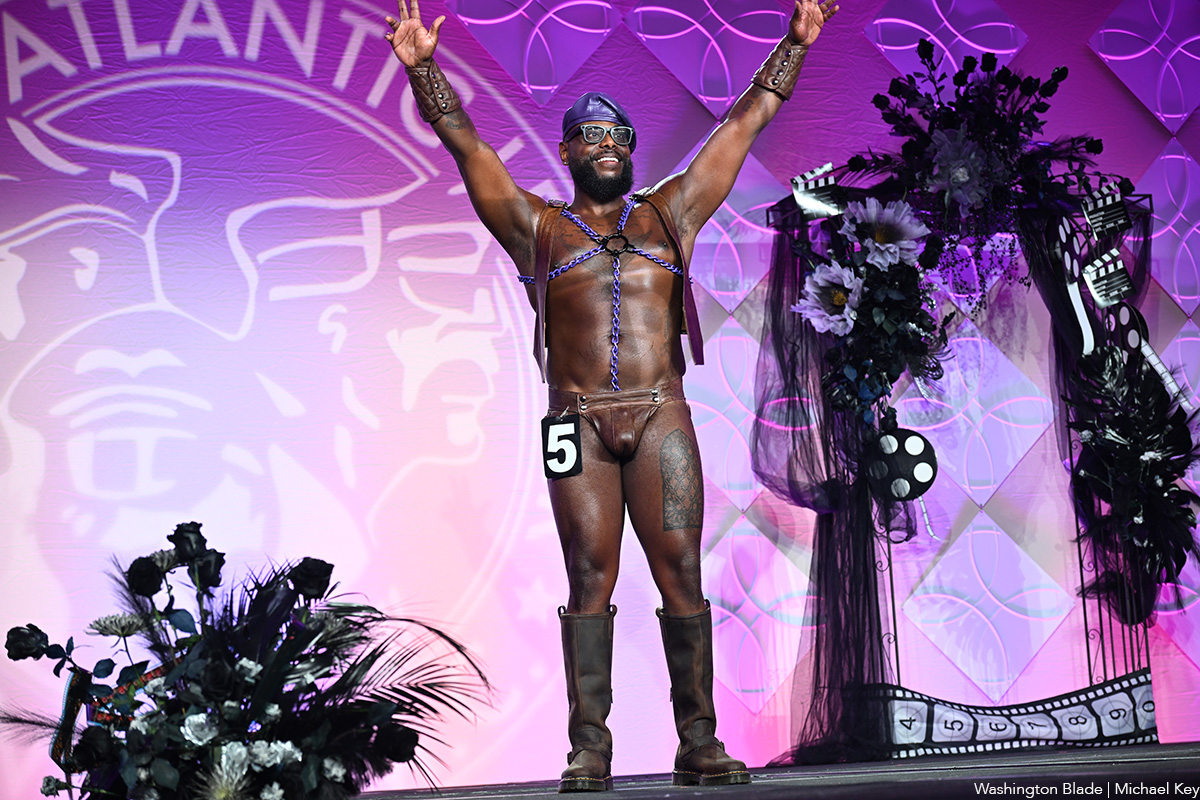
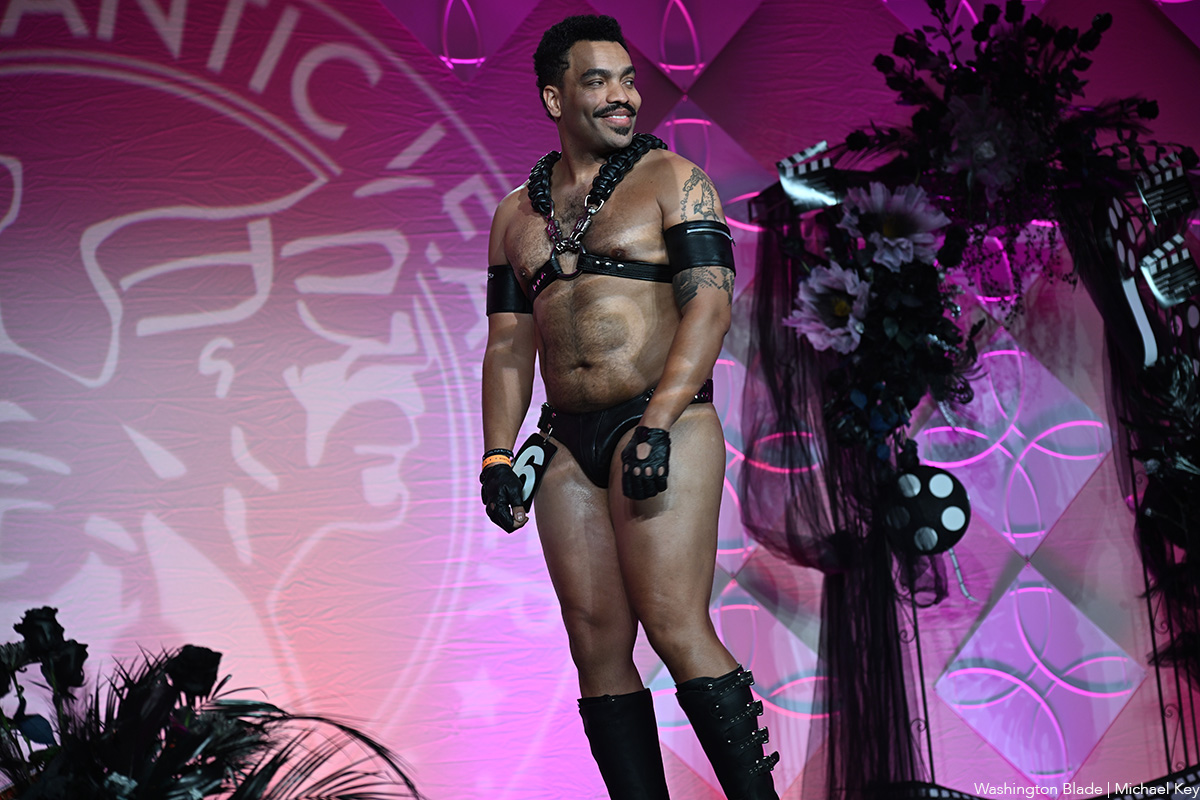
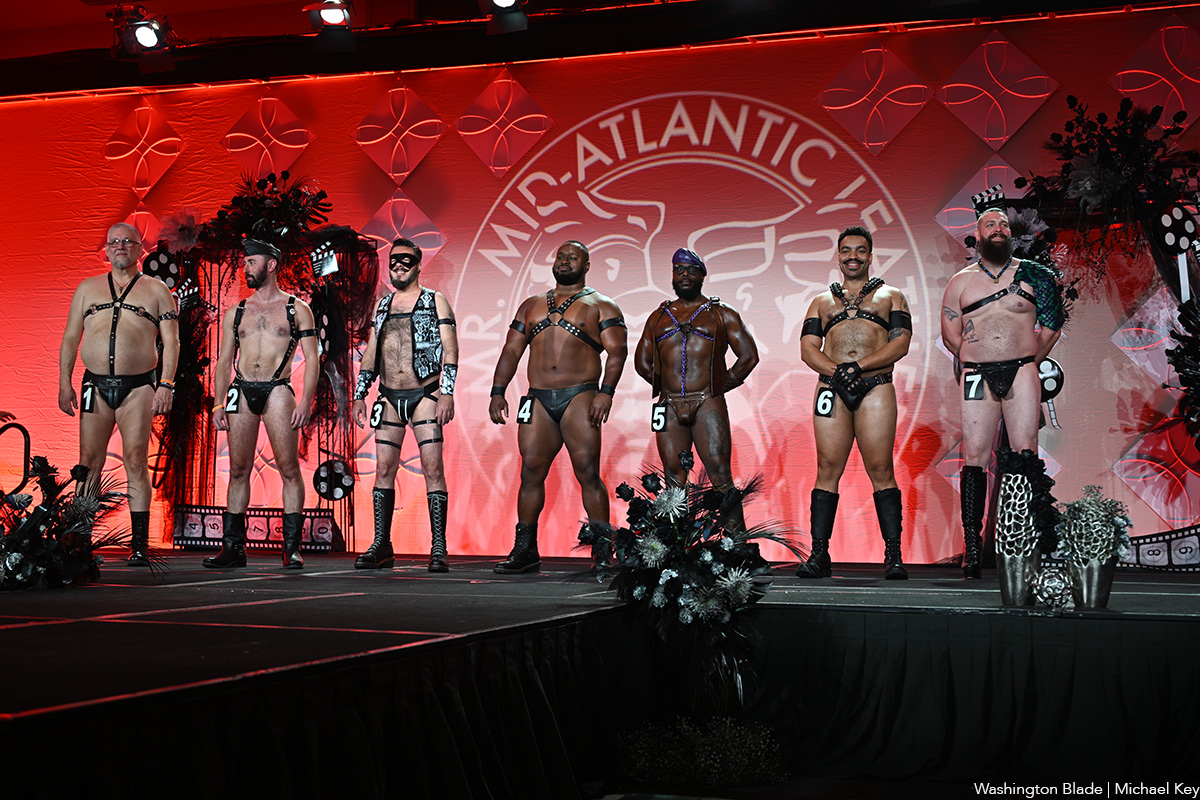
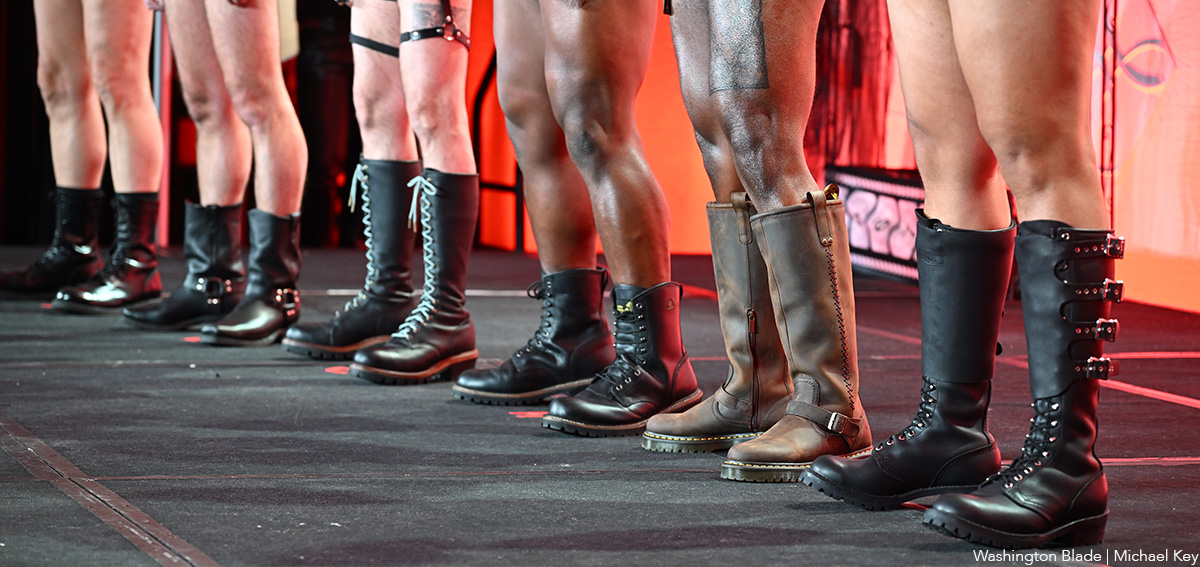
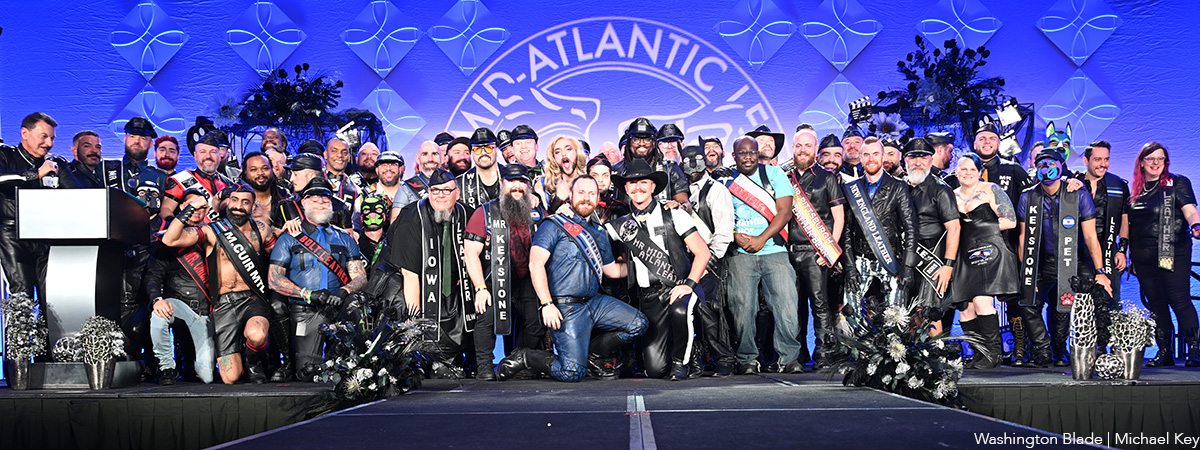
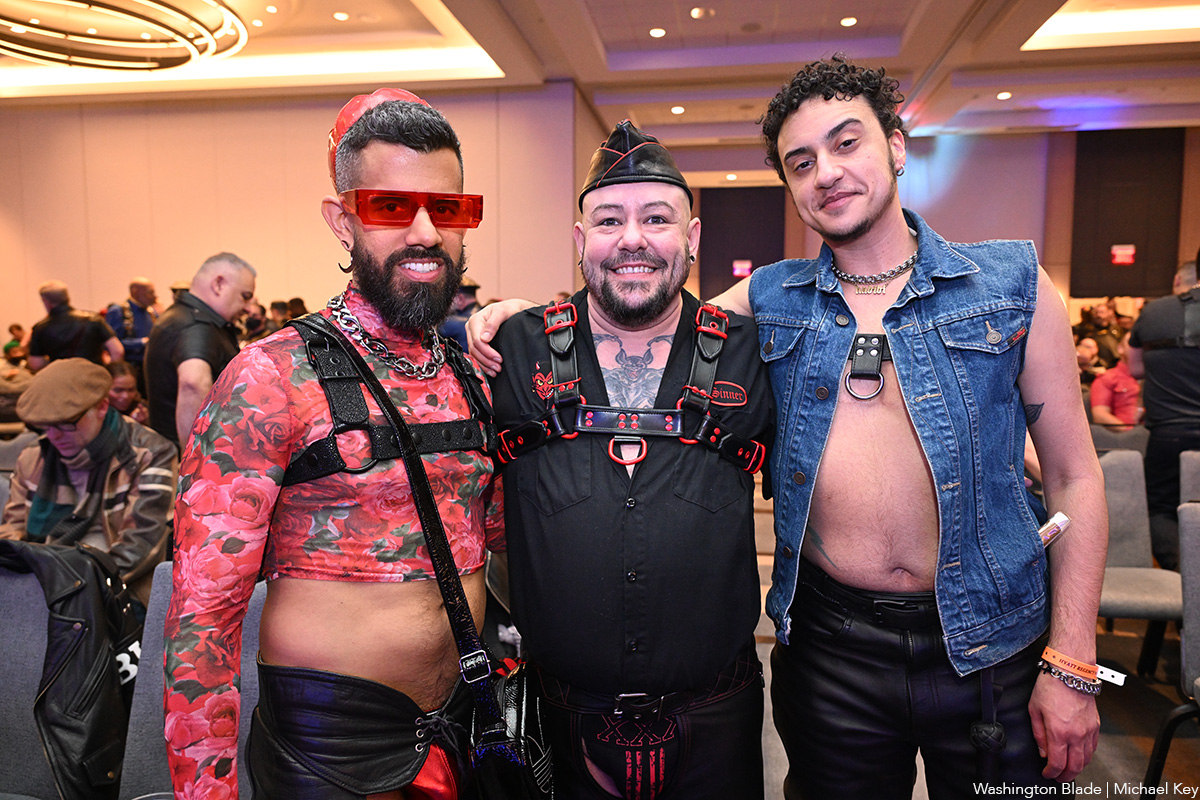
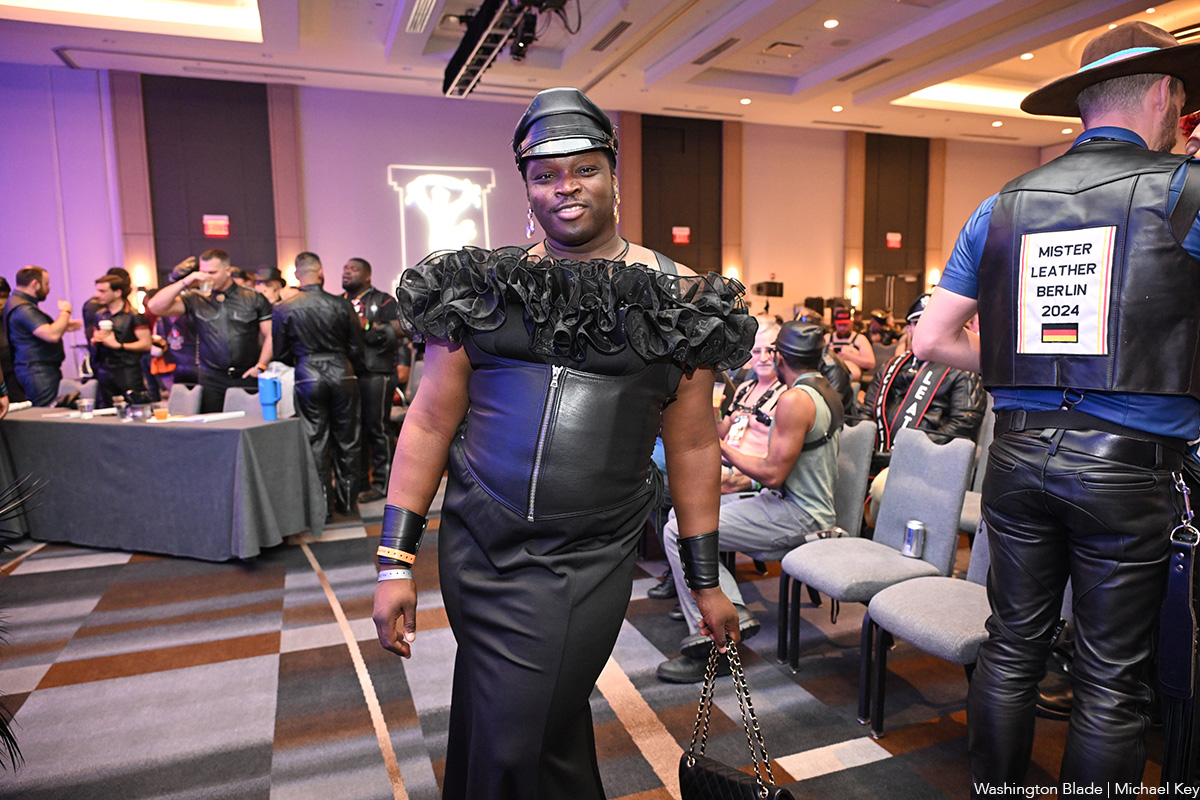
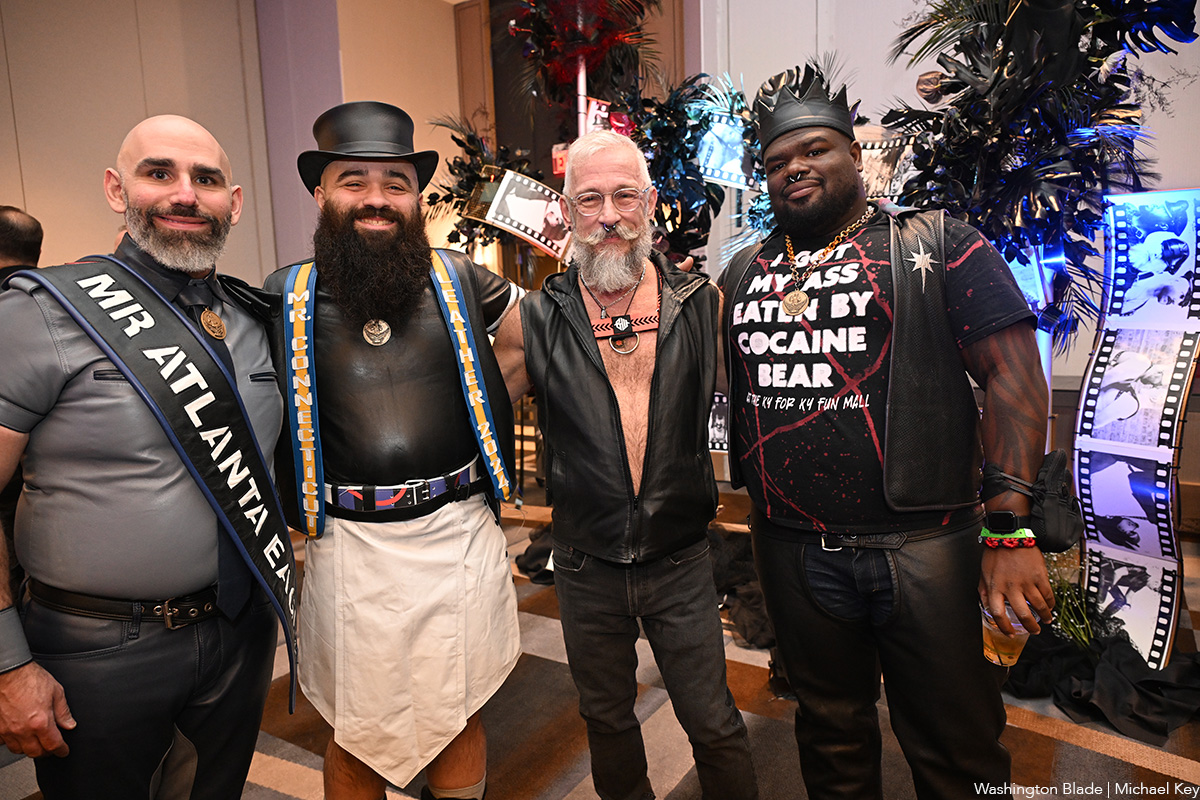

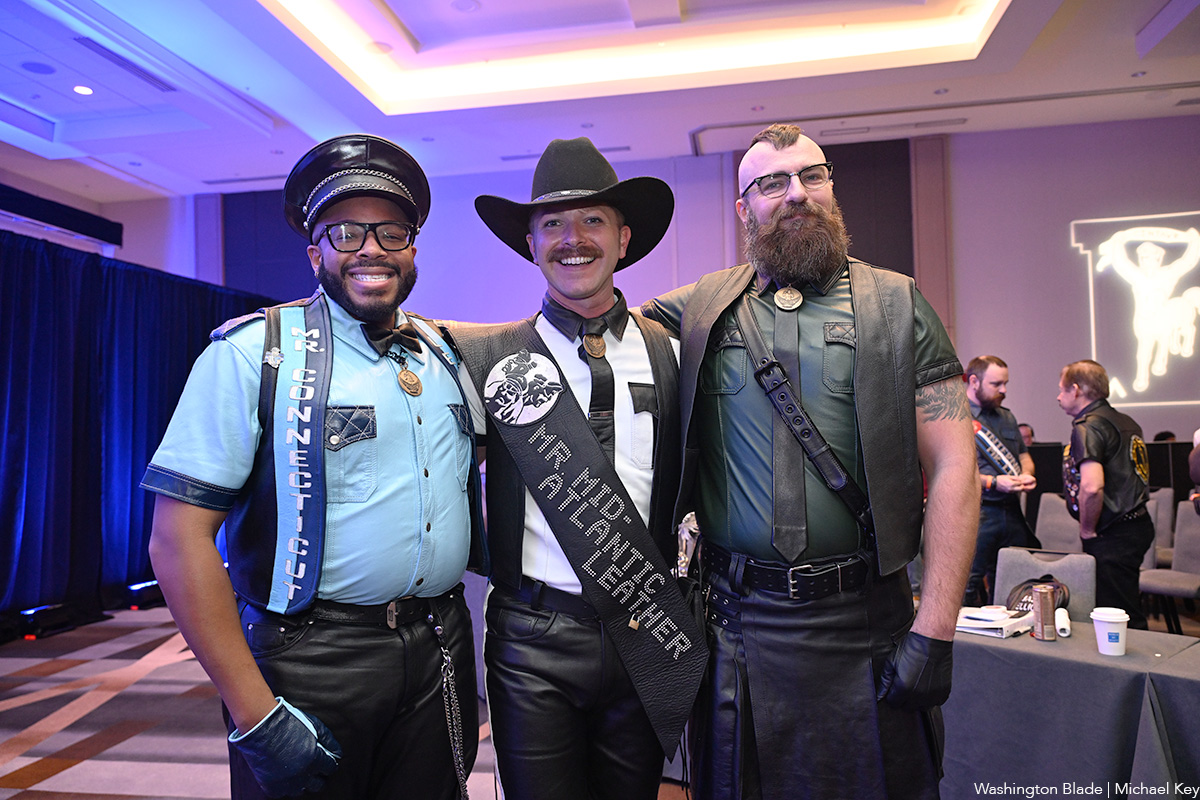
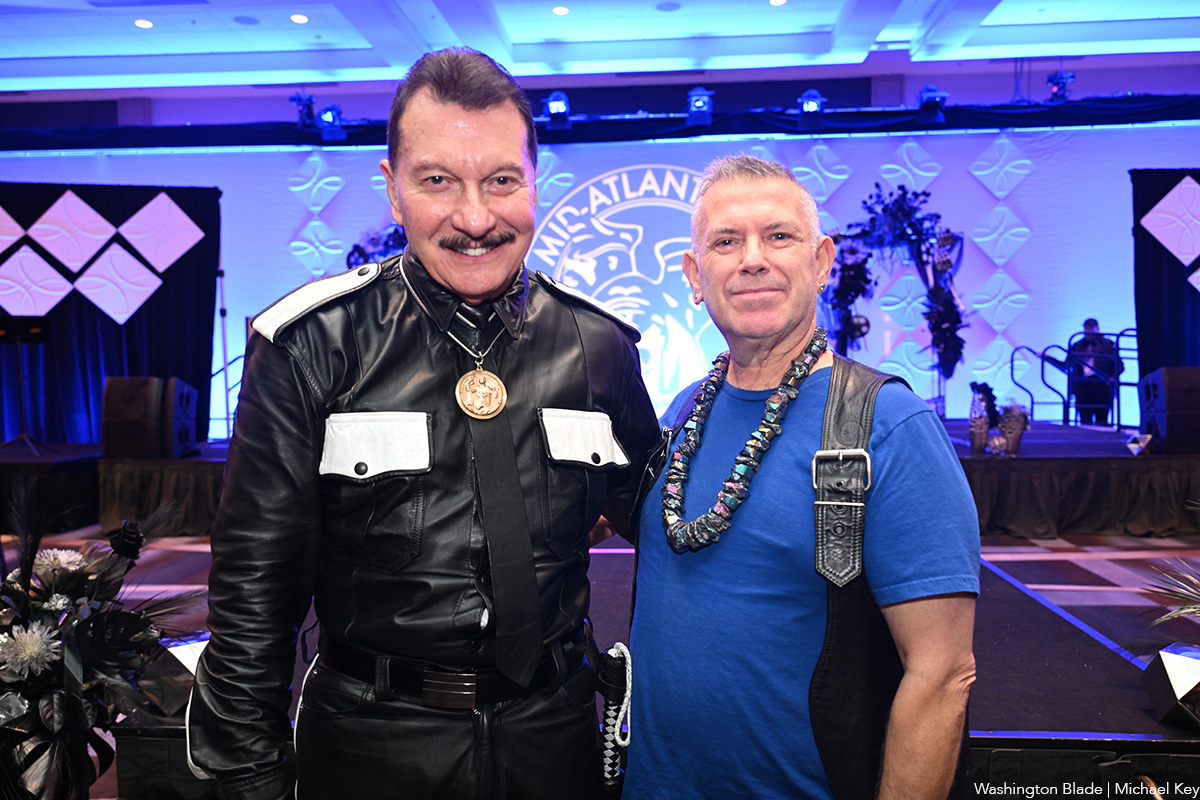
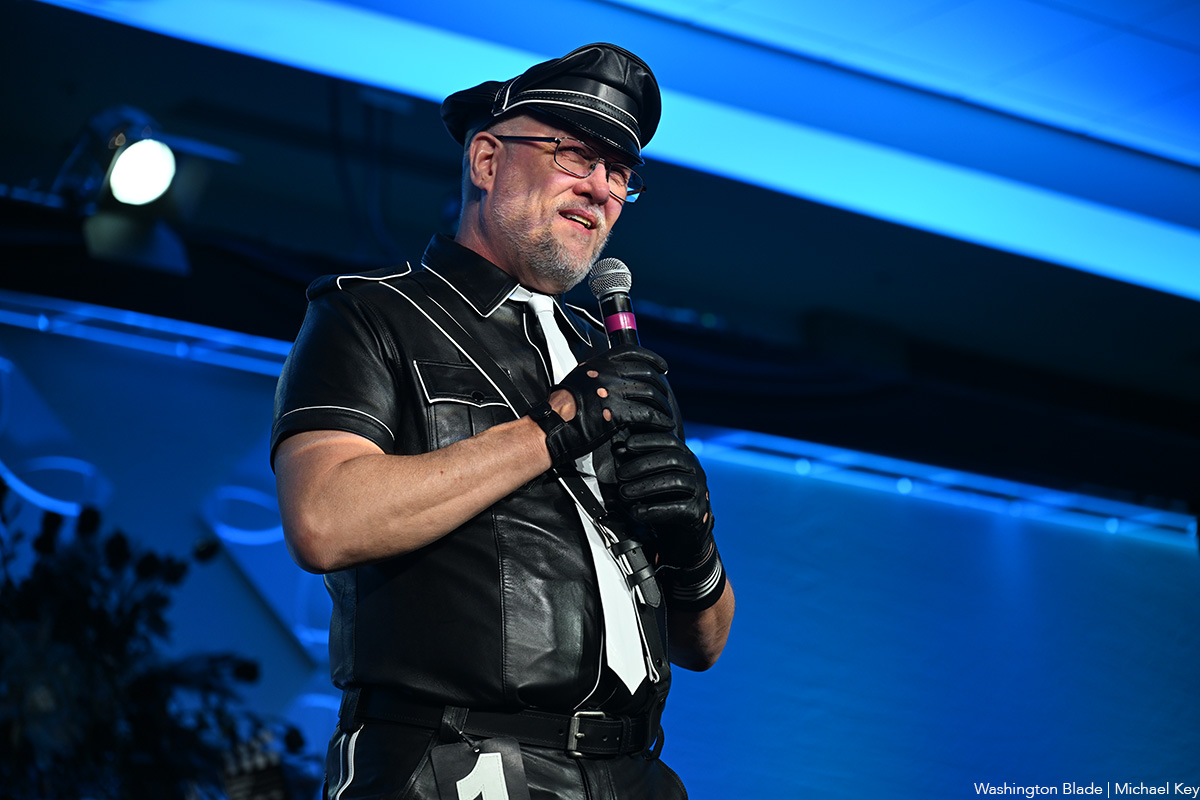
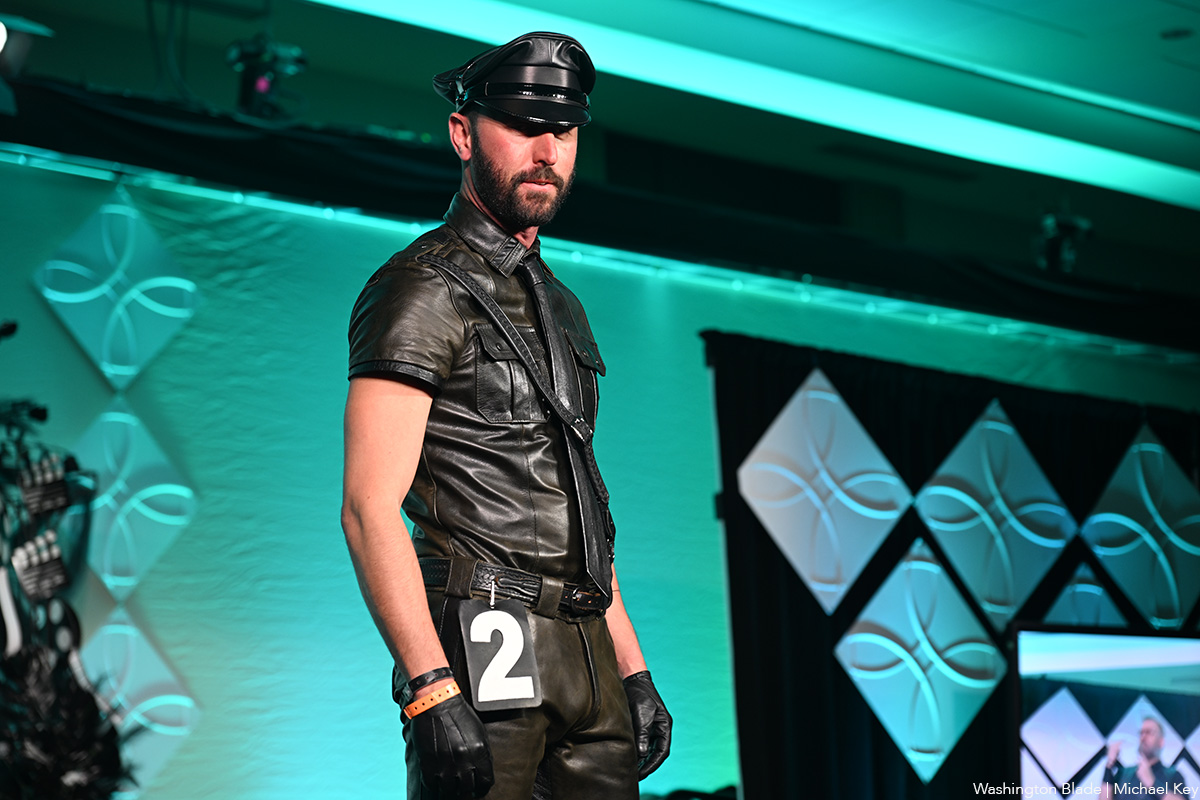

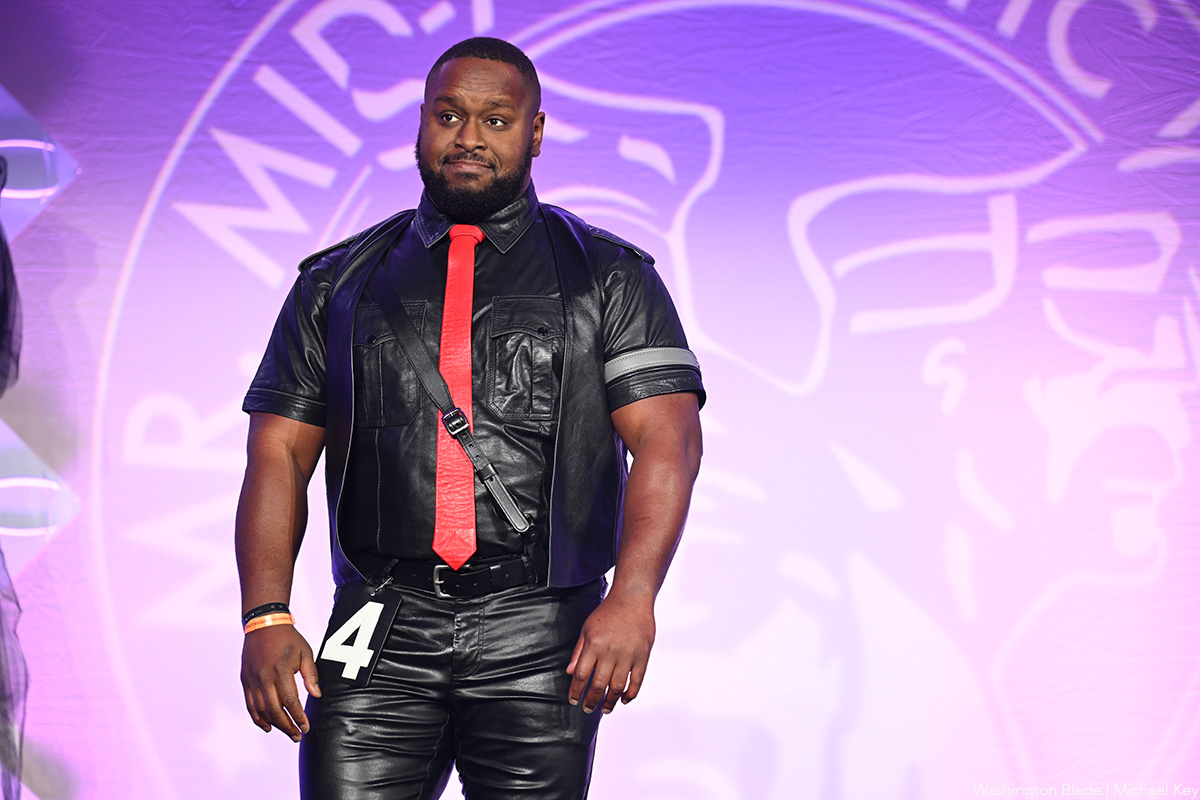
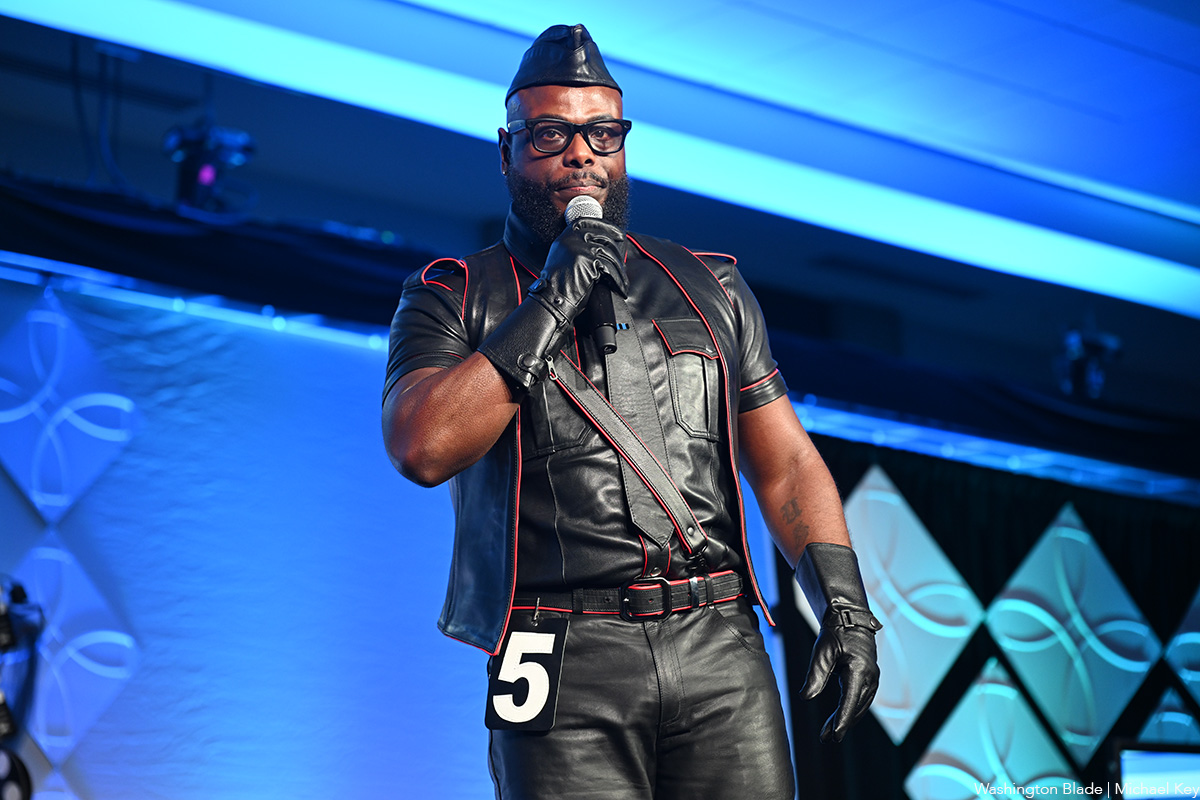
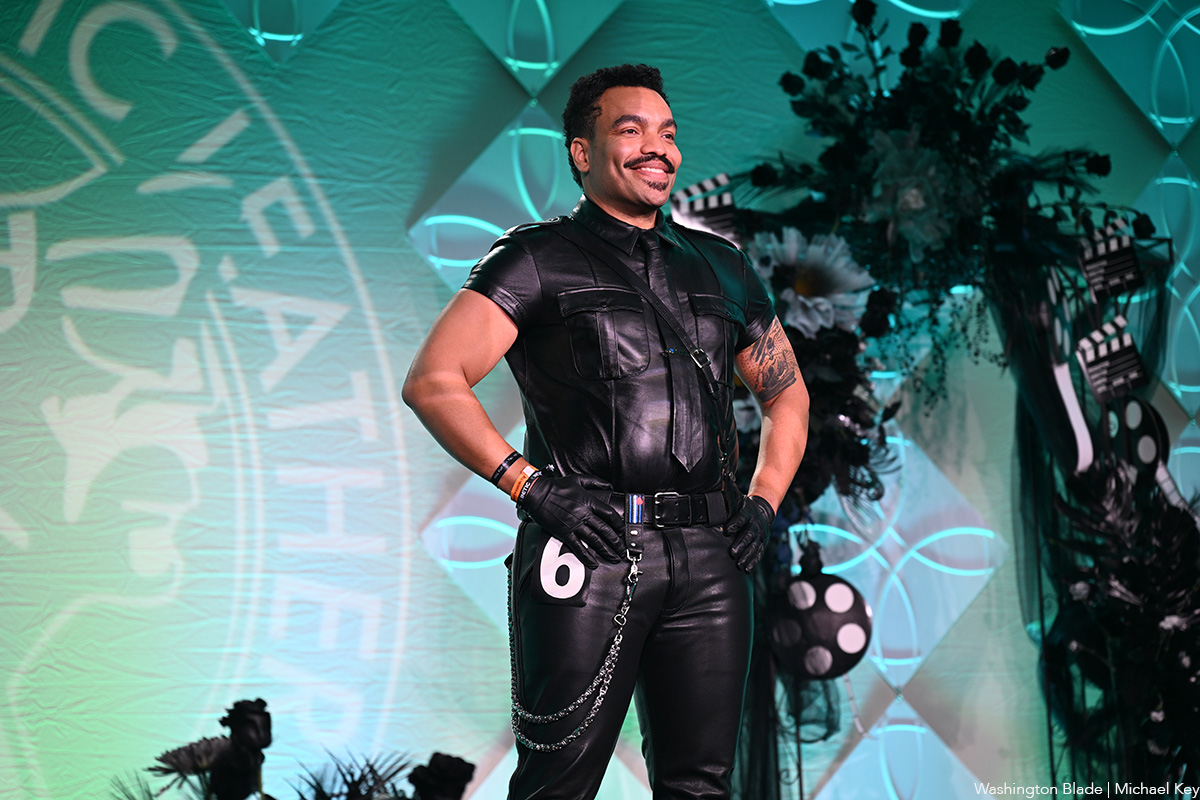
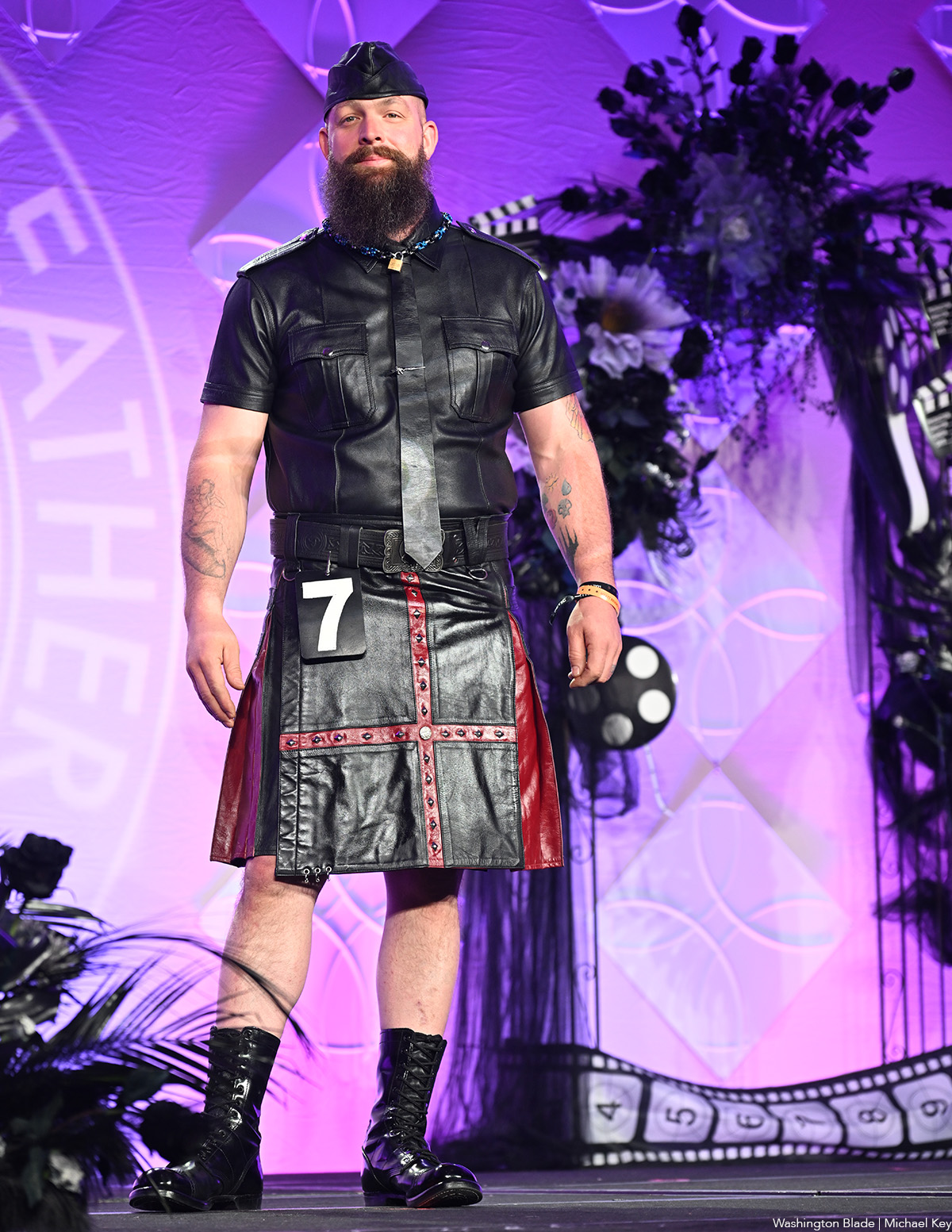
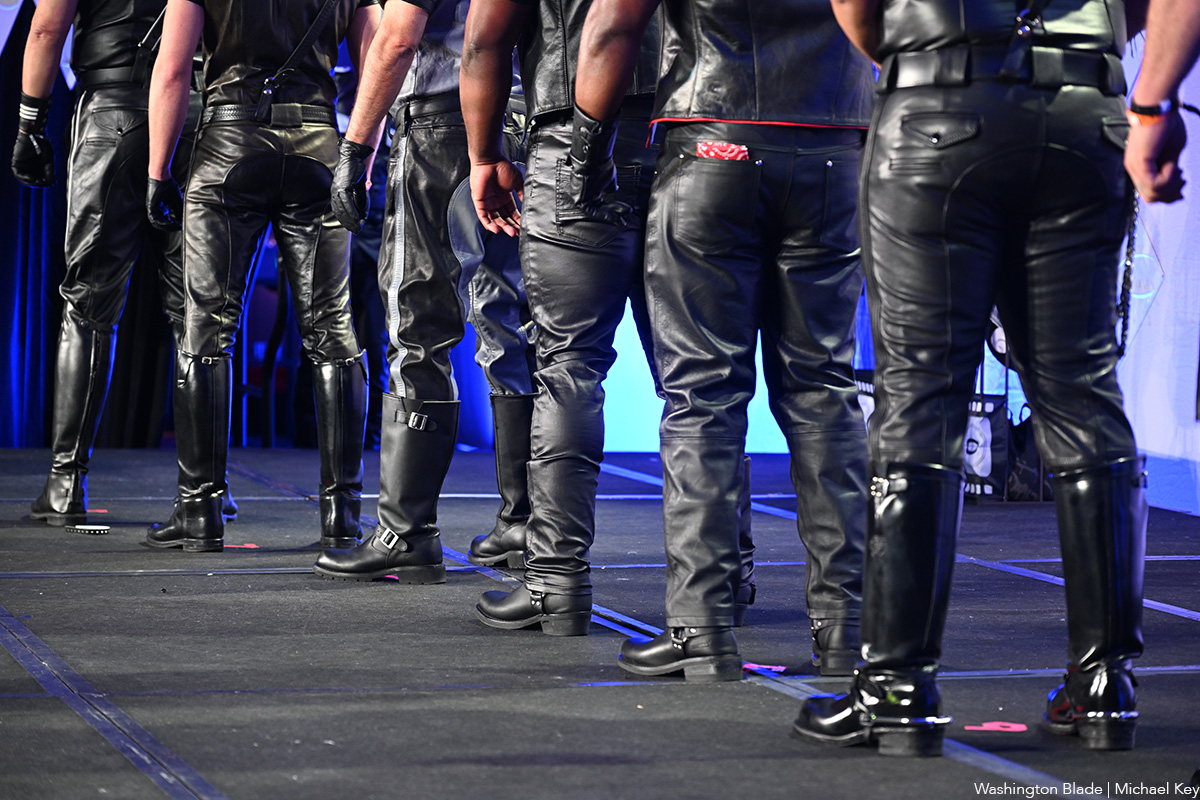
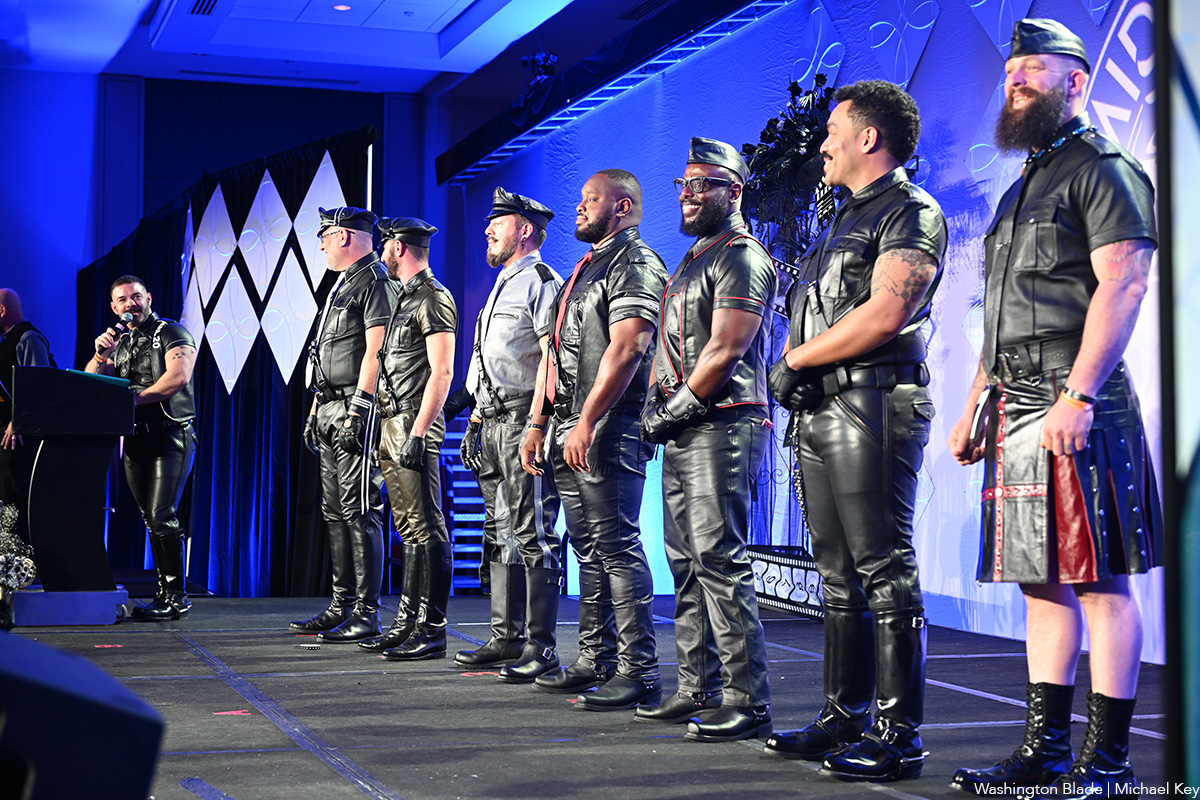

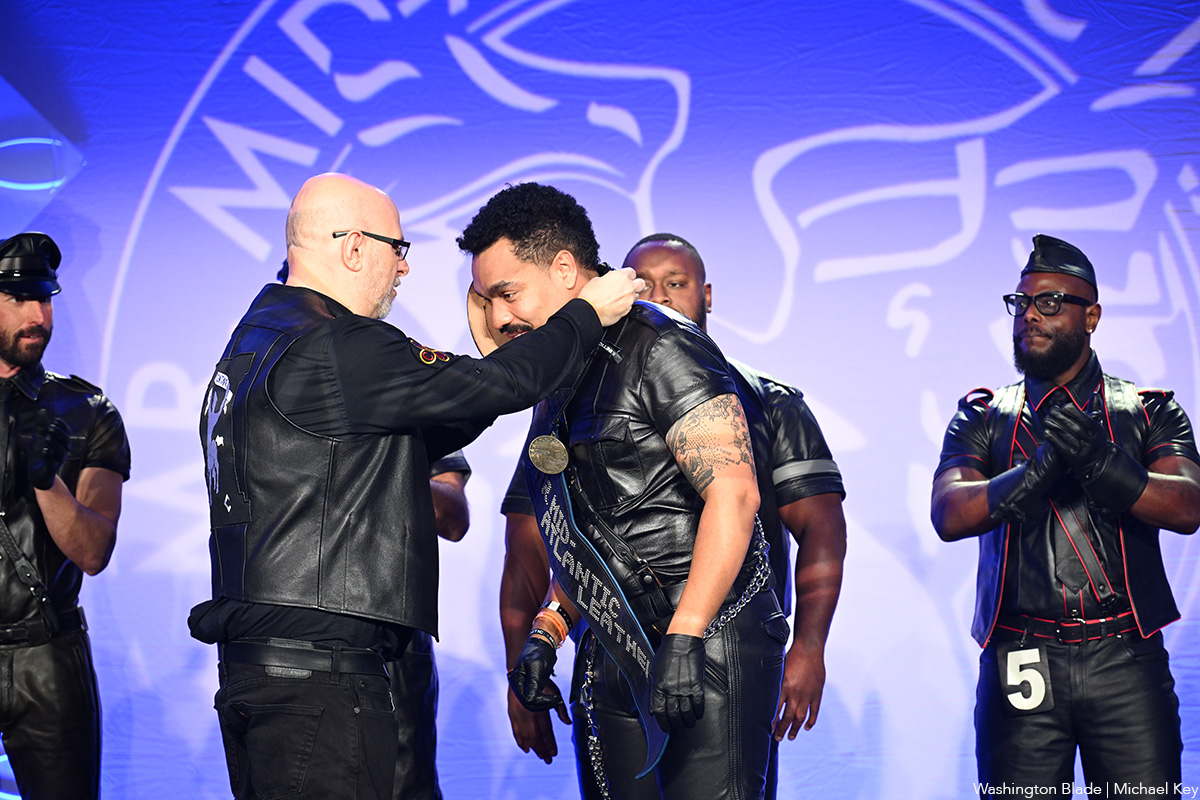

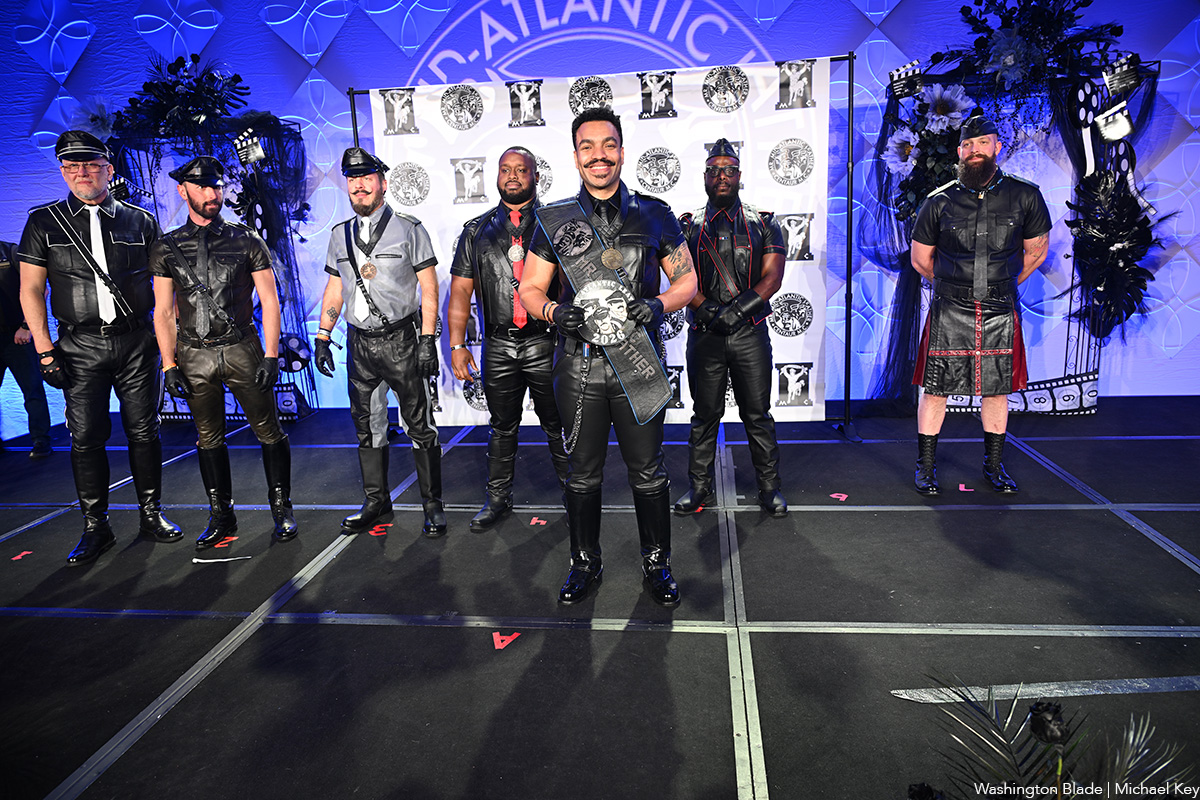
Theater
Voiceless ‘Antony & Cleopatra’ a spectacle of operatic proportions
Synetic production pulls audience into grips of doomed lovers’ passion
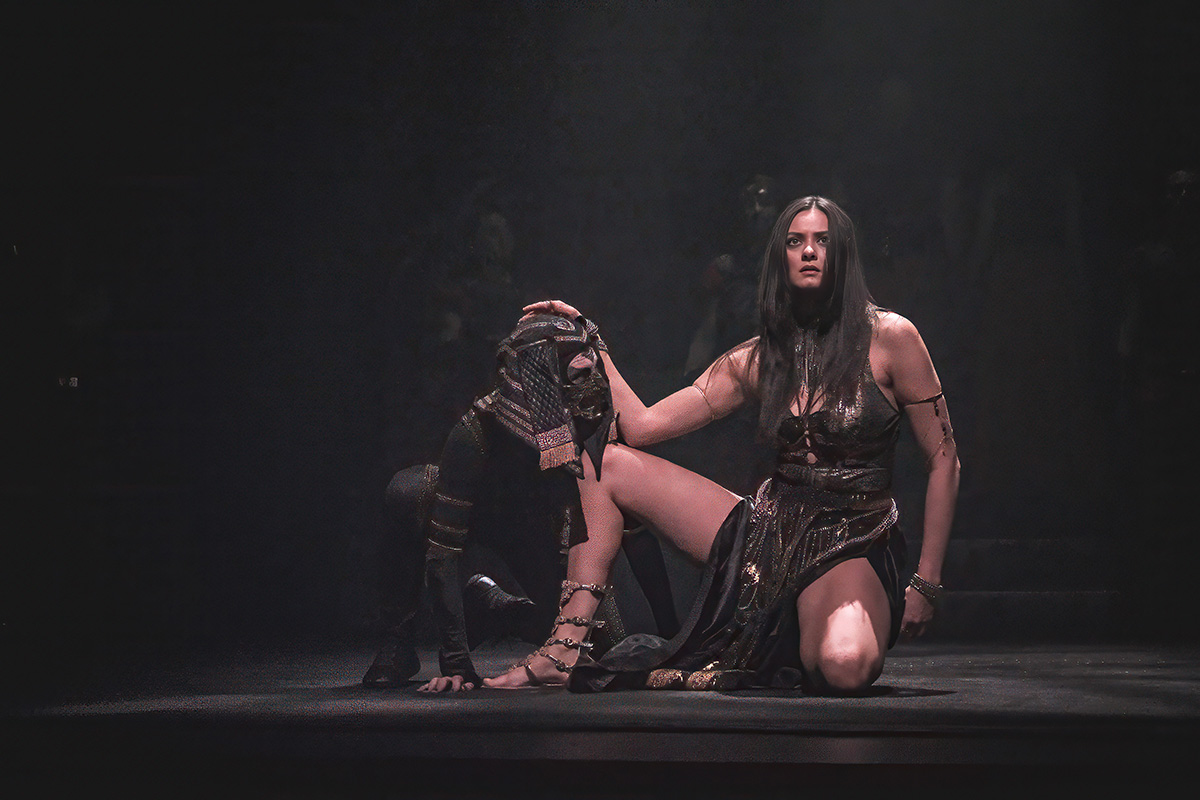
‘Antony & Cleopatra’
Through Jan. 25
Synetic Theater at
Shakespeare Theatre Company’s Klein Theatre
450 7th St., N.W.
Synetictheater.org
A spectacle of operatic proportions, Synetic Theater’s “Antony & Cleopatra” is performed entirely voiceless. An adaptation of the Bard’s original (a play bursting with wordplay, metaphors, and poetic language), the celebrated company’s production doesn’t flinch before the challenge.
Staged by Paata Tsikurishvili and choreographed by Irina Tsikurishvili, this worthy remount is currently playing at Shakespeare Theatre Company’s Klein Theatre, the same venue where it premiered 10 years ago. Much is changed, including players, but the usual inimitable Synectic energy and ingenuity remain intact.
As audiences file into the Klein, they’re met with a monumental pyramid bathed in mist on a dimly lit stage. As the lights rise, the struggle kicks off: Cleopatra (Irina Kavsadze) and brother Ptolemy (Natan-Maël Gray) are each vying for the crown of Egypt. Alas, he wins and she’s banished from Alexandria along with her ethereal black-clad sidekick Mardian (Stella Bunch); but as history tells us, Cleopatra soon makes a triumphant return rolled in a carpet.
Meanwhile, in the increasingly dangerous Rome, Caesar (memorably played by Tony Amante) is assassinated by a group of senators. Here, his legendary Ides of March murder is rather elegantly achieved by silver masked politicians, leaving the epic storytelling to focus on the titular lovers.
The fabled couple is intense. As the Roman general Antony, Vato Tsikurishvili comes across as equal parts warrior, careerist, and beguiled lover. And despite a dose of earthiness, it’s clear that Kavsadze’s Cleopatra was born to be queen.
Phil Charlwood’s scenic design along with Colin K. Bills’ lighting cleverly morph the huge pyramidic structure into the throne of Egypt, the Roman Senate, and most astonishingly as a battle galley crashing across the seas with Tsikurishvili’s Antony ferociously at the helm.
There are some less subtle suggestions of location and empire building in the form of outsized cardboard puzzle pieces depicting the Mediterranean and a royal throne broken into jagged halves, and the back-and-forth of missives.
Of course, going wordless has its challenges. Kindly, Synectic provides a compact synopsis of the story. I’d recommend coming early and studying that page. With changing locations, lots of who’s who, shifting alliances, numerous war skirmishes, and lack of dialogue, it helps to get a jump on plot and characters.
Erik Teague’s terrific costume design is not only inspired but also helpful. Crimson red, silver, and white say Rome; while all things Egyptian have a more exotic look with lots of gold and diaphanous veils, etc.
When Synetic’s voicelessness works, it’s masterful. Many hands create the magic: There’s the direction, choreography, design, and the outrageously committed, sinewy built players who bring it to life through movement, some acrobatics, and the remarkable sword dancing using (actual sparking sabers) while twirling to original music composed by Konstantine Lortkipanidze.
Amid the tumultuous relationships and frequent battling (fight choreography compliments of Ben Cunis), moments of whimsy and humor aren’t unwelcome. Ptolemy has a few clownish bits as Cleopatra’s lesser sibling. And Antony’s powerful rival Octavian (ageless out actor Philip Fletcher) engages in peppy propaganda featuring a faux Cleopatra (played by Maryam Najafzada) as a less than virtuous queen enthusiastically engaged in an all-out sex romp.
When Antony and Cleopatra reach their respective ends with sword and adder, it comes almost as a relief. They’ve been through so much. And from start to finish, without uttering a word, Kavsadze and Tsikurishvili share a chemistry that pulls the audience into the grips of the doomed lovers’ palpable passion.
Out & About
Love board games and looking for love?
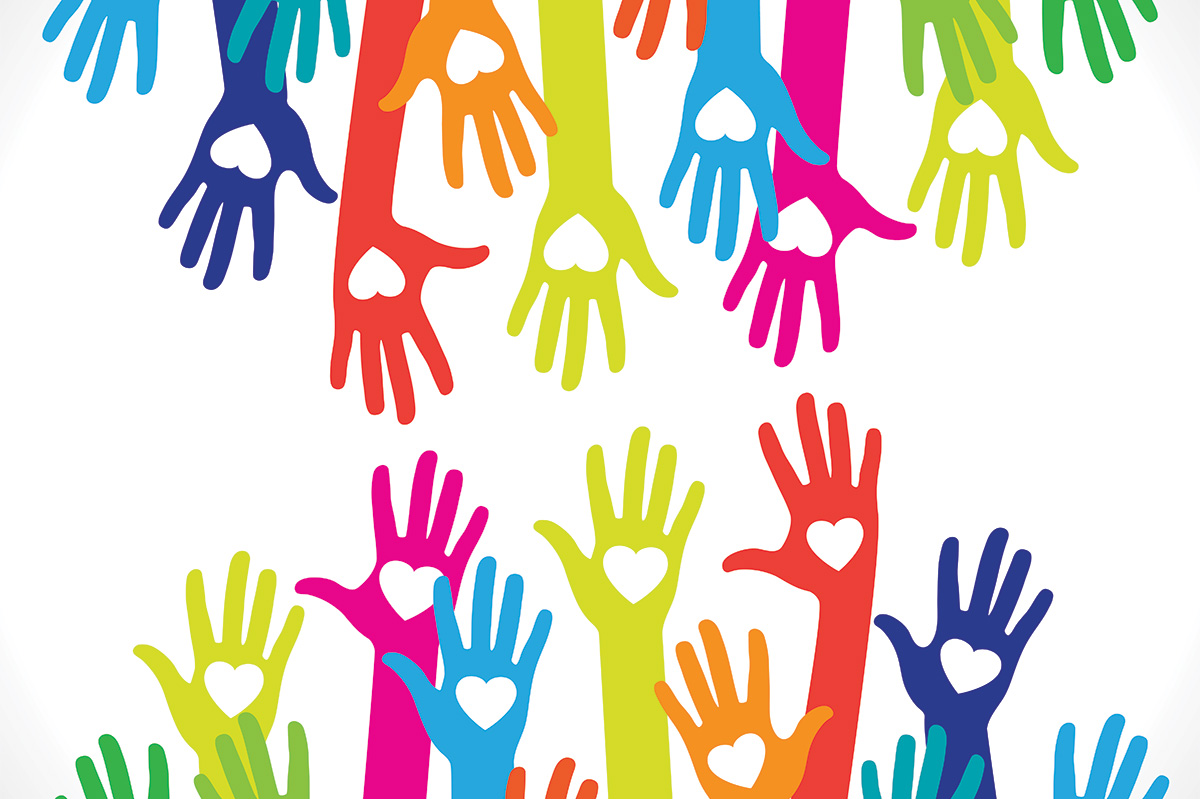
Quirk Events will host “Board Game Speed Dating for Gay Men” on Thursday, Jan. 22 at 7 p.m. at KBird DC.
Searching for a partner can be challenging. But board games are always fun. So what if you combined board games and finding a partner?
Picture this: You sit down for a night of games. A gaming concierge walks you through several games over the course of the night. You play classics you love and discover brand new games you’ve never heard of, playing each with a different group of fun singles. All while in a great establishment.
At the end of the night, you give your gaming concierge a list of the folks you met that you’d like to date and a list of those you met that you’d like to just hang out with as friends. If any two people put down the same name as each other in either column, then your gaming concierge will make sure you get each other’s e-mail address and you can coordinate a time to hang out.
Tickets cost $31.80 and can be purchased on Eventbrite.



















